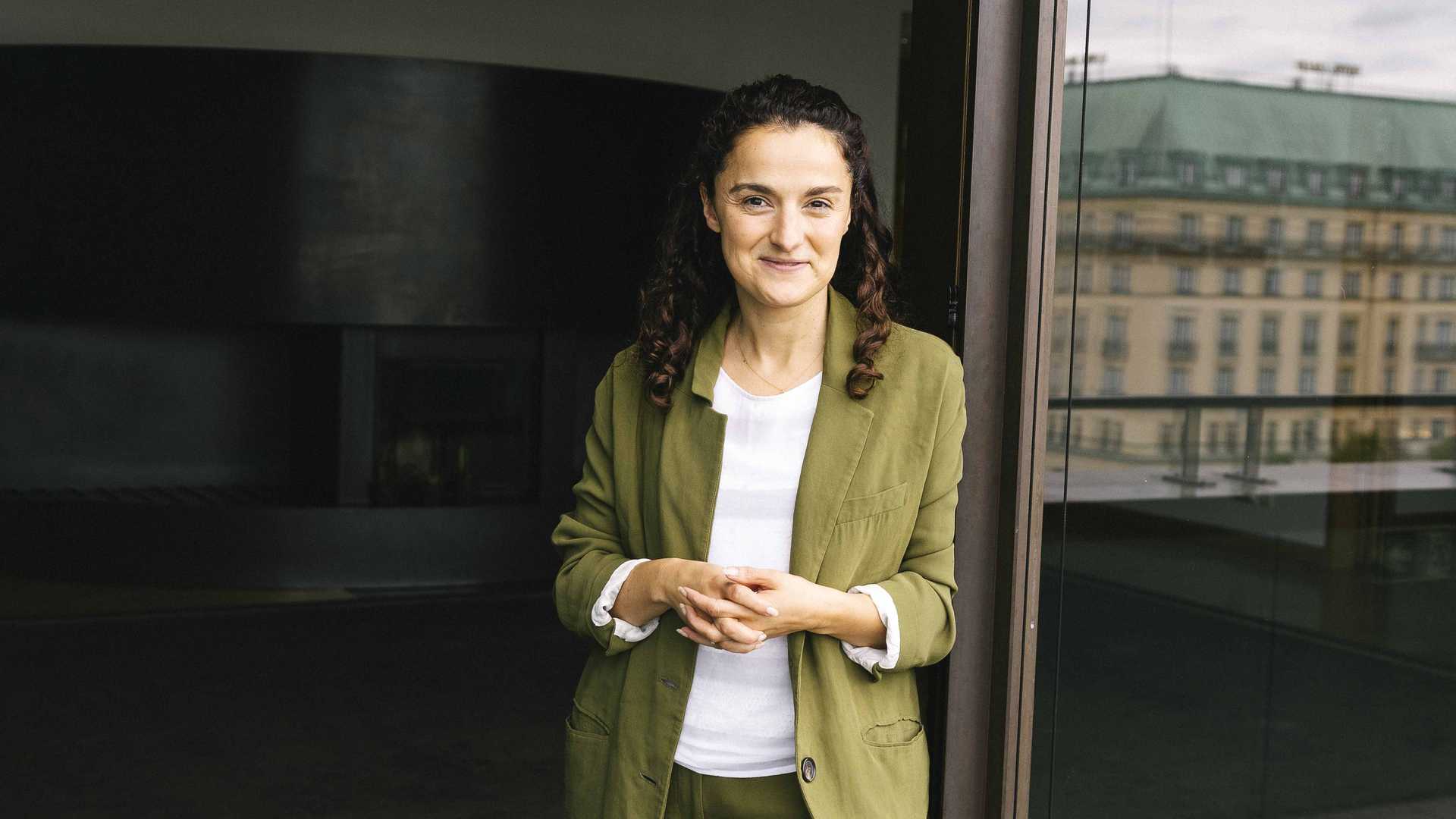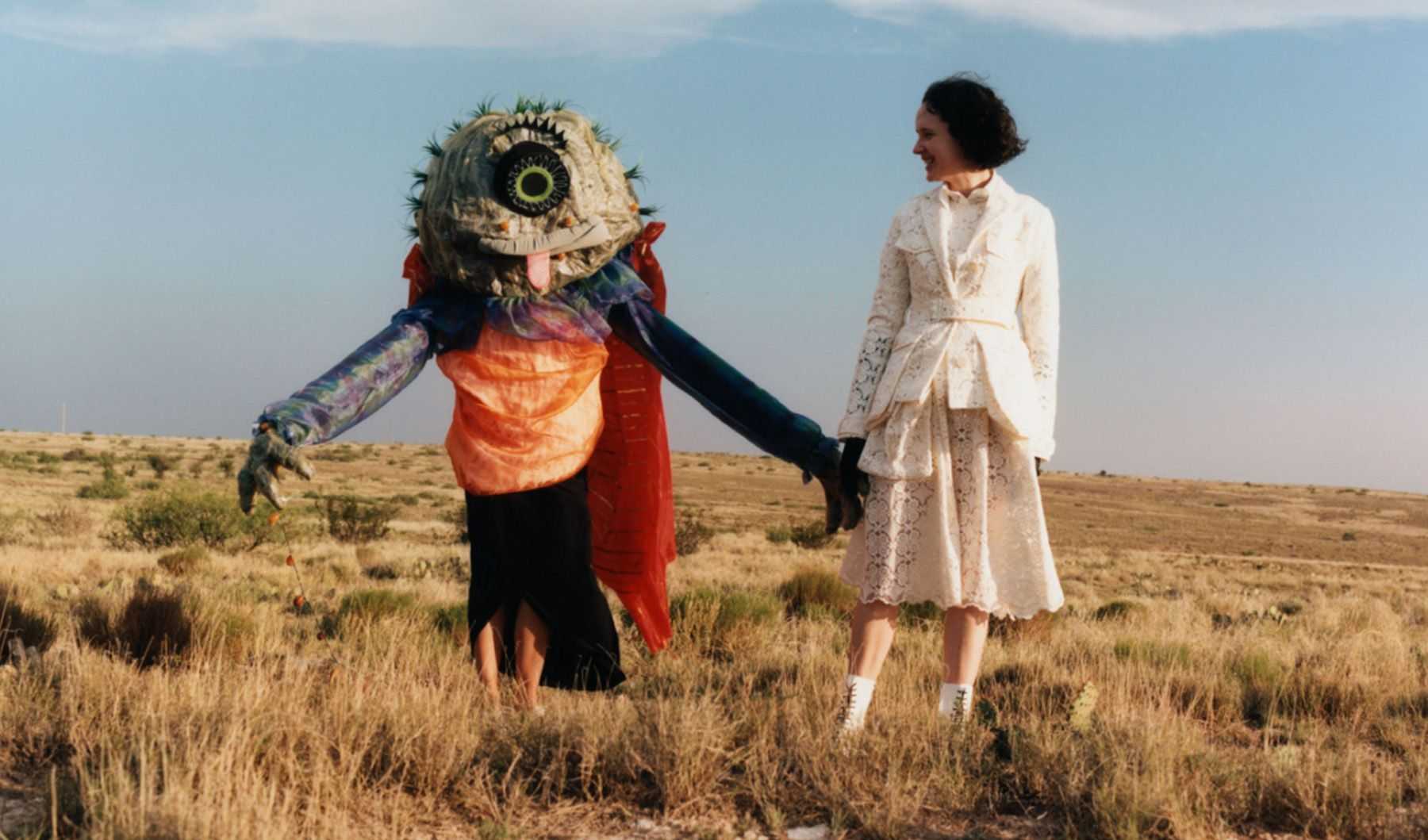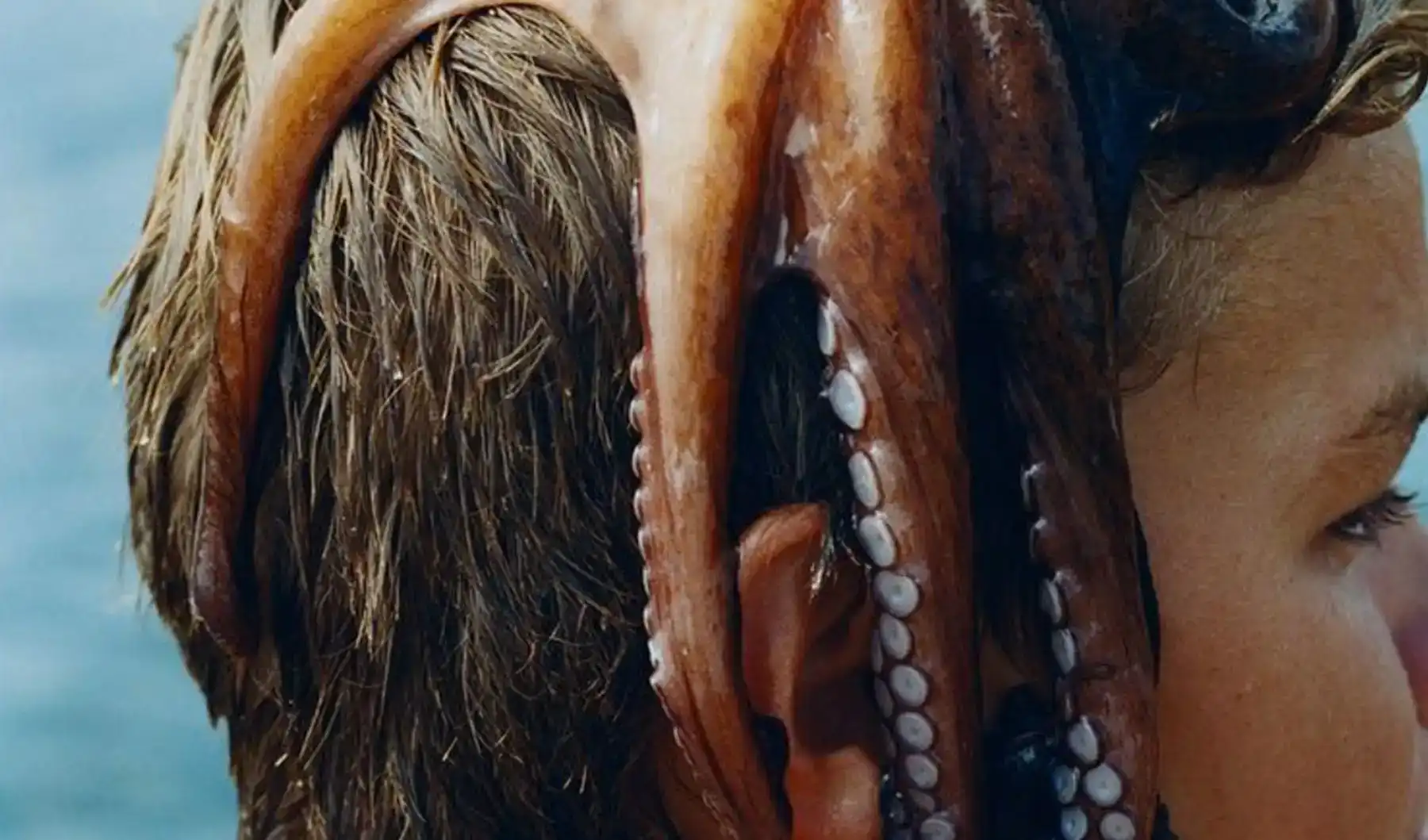Table of contents

Chapter 01
The Allianz Foundation Strategy
2023 - If not now, when?
Our Vision: Enabling Better Living Conditions for the Next Generations
The Allianz Foundation works at the point where the various challenges faced by our planet, and thus humanity itself, intersect. We are guided by the firm belief that open societies, social justice and a liveable environment are mutually dependent opon each other and, as a result, call for joined-up thinking. Only by adopting a holistic approach will we be able to provide solutions that promote systemic change.
Our Theory of Change: Supporting Risktakers
To drive forward that change, we work with people we call 'risktakers'- committed individuals and organizations in the realms of civil society, art and culture, and climate action—who are prepared to tread new paths to create better living conditions for future generations. We focus on three strategic goals: promoting equal opportunities; creating open, diverse and resilient societies across Europe; and combating climate change while preserving biodiversity.
The Allianz Foundation has summarized these goals in three principles that describe our main strategic areas:
- For empowered people
- For open societies
- For a living planet
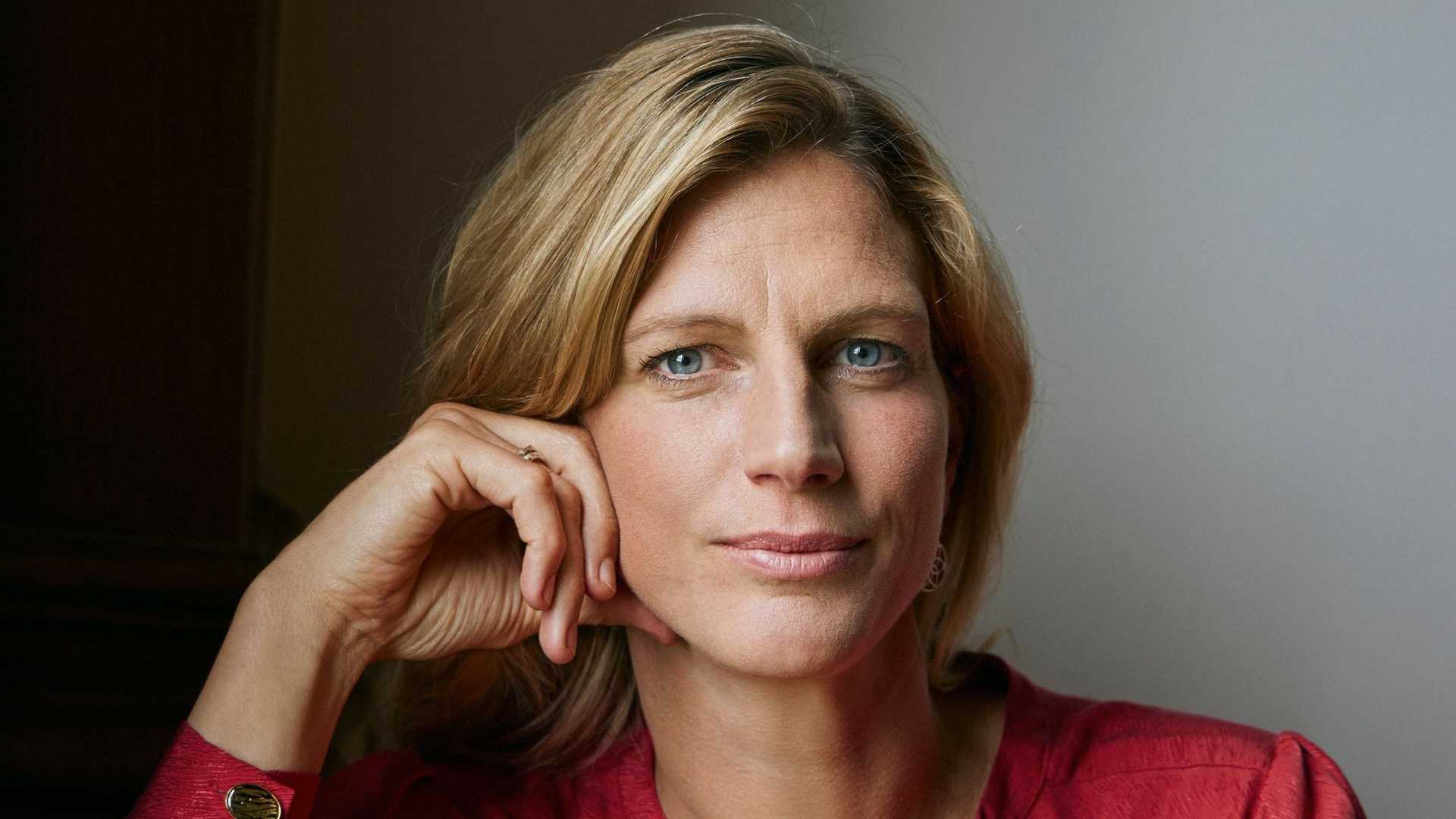
"The word 'transformation' implies reshaping of the structures of human coexistence, requiring imagination to adapt and focus on essentials. By combining culture and environmental protection, the Allianz Foundation is pioneering a groundbreaking path."
Maja Göpel
Maja Göpel, Transformation researcher and founder of Mission Wertvoll about the Allianz Foundation (© Anja Weber)
Developing our Strategy in 2023
To live up to our vision, we continued developing the Allianz Foundation Strategy over the course of 2023 thus ensuring it is even more impact-oriented. Our goal was to tailor our funding measures even more specifically to our target groups’ actual needs. In a first step, we organized 10 Future Labs both online as well as in seven European cities as part of our research activities – the Allianz Foundation Study Series. More than 100 civil society actors in our People, Society and Planet strategy areas took part in these dialogue-based surveys. The resulting data gave us concrete insights into what risktakers in Europe want in order to ensure their work is more impact-oriented.
As part of an internal process, we leveraged that survey to develop a number of goals for the coming years. Important for us was the use of a participatory approach to incorporate the diverse perspectives within the Foundation and to firmly embed “impact orientation” into our organizational culture. This process will now be implemented in three steps over the course of 2024, those being (1) specifying strategic goals in the three strategic areas; (2) developing new fields of action; (3) developing and introducing impact-oriented funding processes.
The Allianz Foundation’s Fields of Action
As part of the strategy process that culminated in the establishment of the Allianz Foundation we defined fields of action within our core strategic areas. We spelled out those fields of action in 2023 and in early 2024 to ensure they are closely aligned with current social developments.
“We live in a diverse world but our media do not reflect that reality. Allianz Foundation helps changing this situation by empowering marginalized voices. ”Sonia und Douglas Nandzik-Hermann, ReFocus Media Labs about the Allianz Foundation
Our Funding in 2023
The Allianz Foundation, a non-profit, private foundation under civil law, is legally domiciled in Munich. Its supervisory authority is the government of Upper Bavaria in Munich. The Foundation’s offices are in the Allianz Forum next to the Brandenburg Gate in Berlin.
The Allianz Foundation has a total endowment capital of 100 million euros. The Foundation’s funding is drawn from the income the endowment capital generates. From 2022 up to and including 2031 it will also receive an additional annual donation of 5 million euros from Allianz SE. The Foundation also draws on third-party funding from funding and cooperations with other partners. The Allianz Foundation income totaled 11 million euros in 2023.
Total expenditure for the Foundation's purpose in 2023
0 m euros
Total income comprises the following:
0 m euros
Allianz SE donation
0 m euros
Income from endowment capital
0 m euros
Third-party funding
0 m euros
Balance carried forward from the Allianz Kulturstiftung that accrues to the balance on account of its merger with the Kulturstiftung
0 m euros
other income
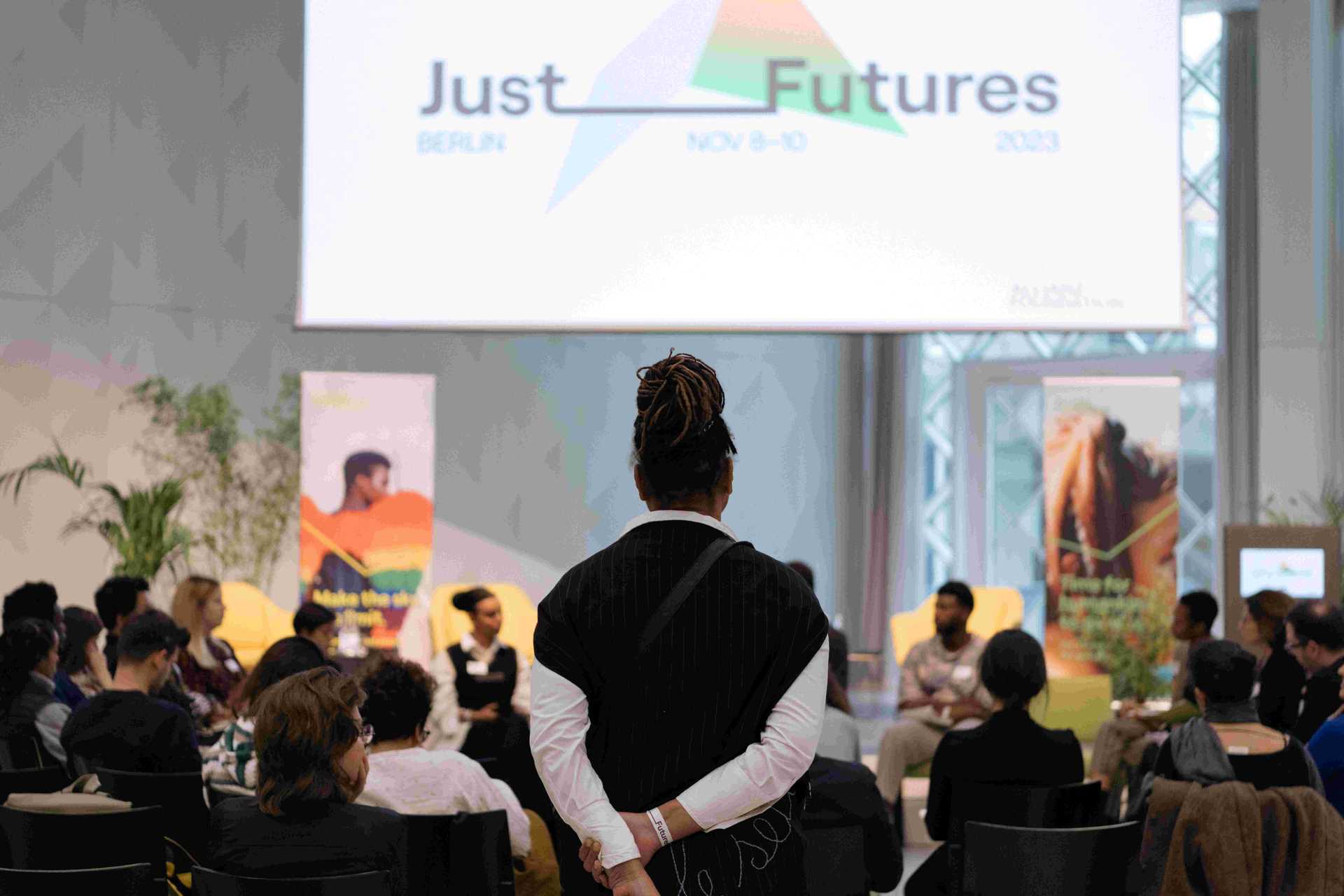
Chapter 02
2023 Highlights
The 2023 Allianz Foundation Summit
“Toward Just Futures” – that was the title of the first Allianz Foundation Summit in Berlin. Three days, 35 countries, 200 risktakers from the realms of art and culture, the climate movement and civil society, and 19 workshops. It was an intensive, inspiring and above all encouraging network meeting that we and our partners had worked toward over the entire year and that had been conceived of, developed and organized in cooperation with them.
The Summit began with the first in-person meeting of our Allianz Foundation Fellows and a gathering of the entire Allianz Foundation Hubs Network – including new members from Brussels and Madrid. The Hubs meeting was the start of the multi-year collaboration. Many more representatives of the projects, initiatives and partner organizations we support also had the opportunity to meet over the subsequent days.
Along with the workshops, the highlight of the Summit was a joint event in the Maxim Gorki Theater on 9 November. Participants listened to a moving podium discussion involving the human rights defender Oleksandra Matviichuk from the Ukrainian Center for Civil Liberties, a Nobel Peace Prize laureate, the British–Israeli architect Eyal Weizman, founder and director of Forensic Architecture, Susanne Baer, former Justice at the German Federal Constitutional Court, and the lawyer Wolfgang Kaleck from the European Center for Constitutional and Human Rights (ECCHR). The evening began with a captivating theater performance called “Mothers. A Song For Wartime,” a project in which the internationally renowned Polish director Marta Górnicka (founder of the Political Voice Institute) who is famous for her choral work brings together more than 20 Ukrainian, Belarusian and Polish women from various generations. As witnesses of war and violence they raise their voice to call for peace.
As the year drew to a close, the Summit above all showed us and our partners that solidarity and consensus about fundamental values are the foundation that will carry us through turbulent times and give us strength.
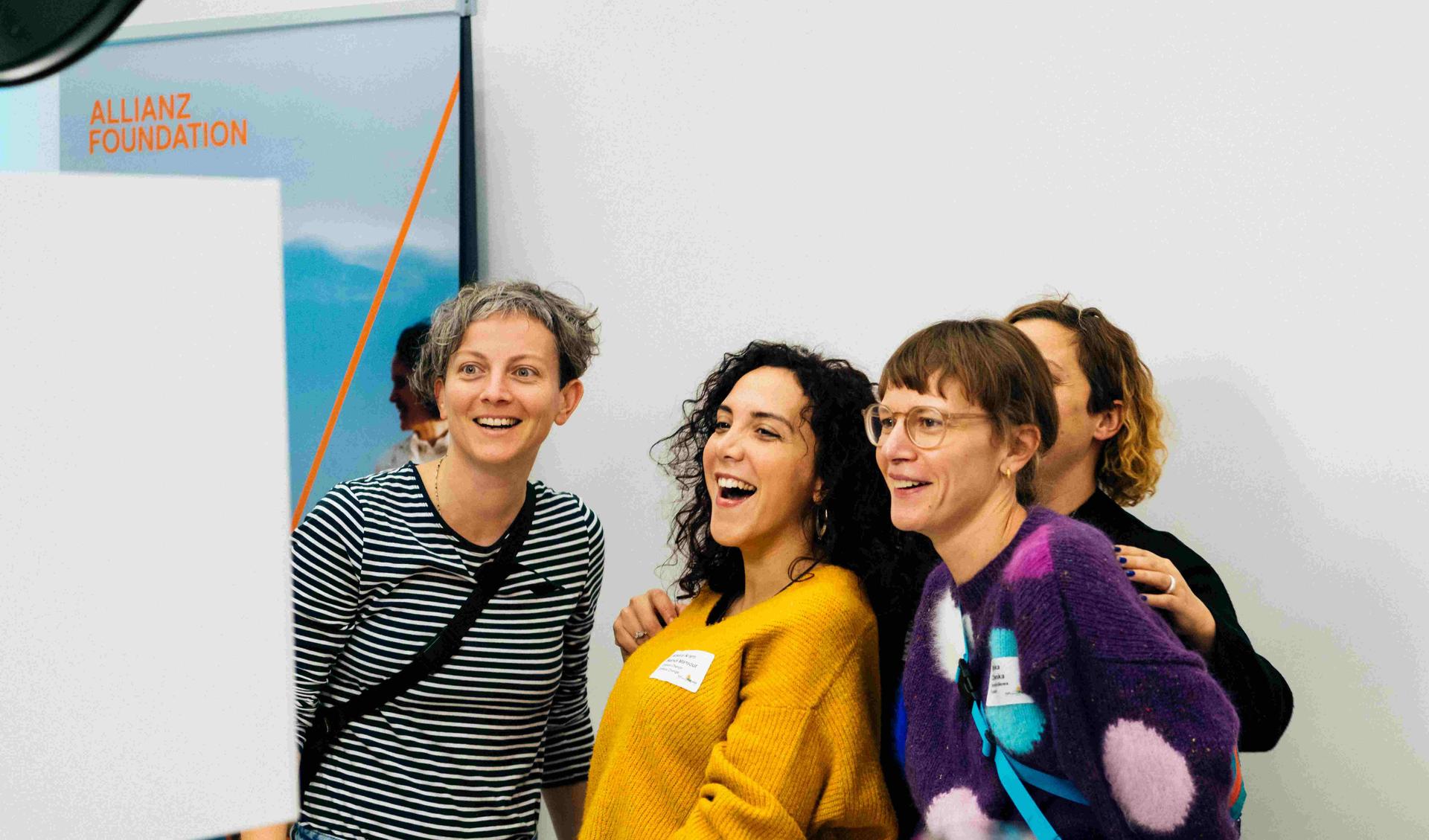
Allianz Foundation Summit 2023 © Leander von Thien
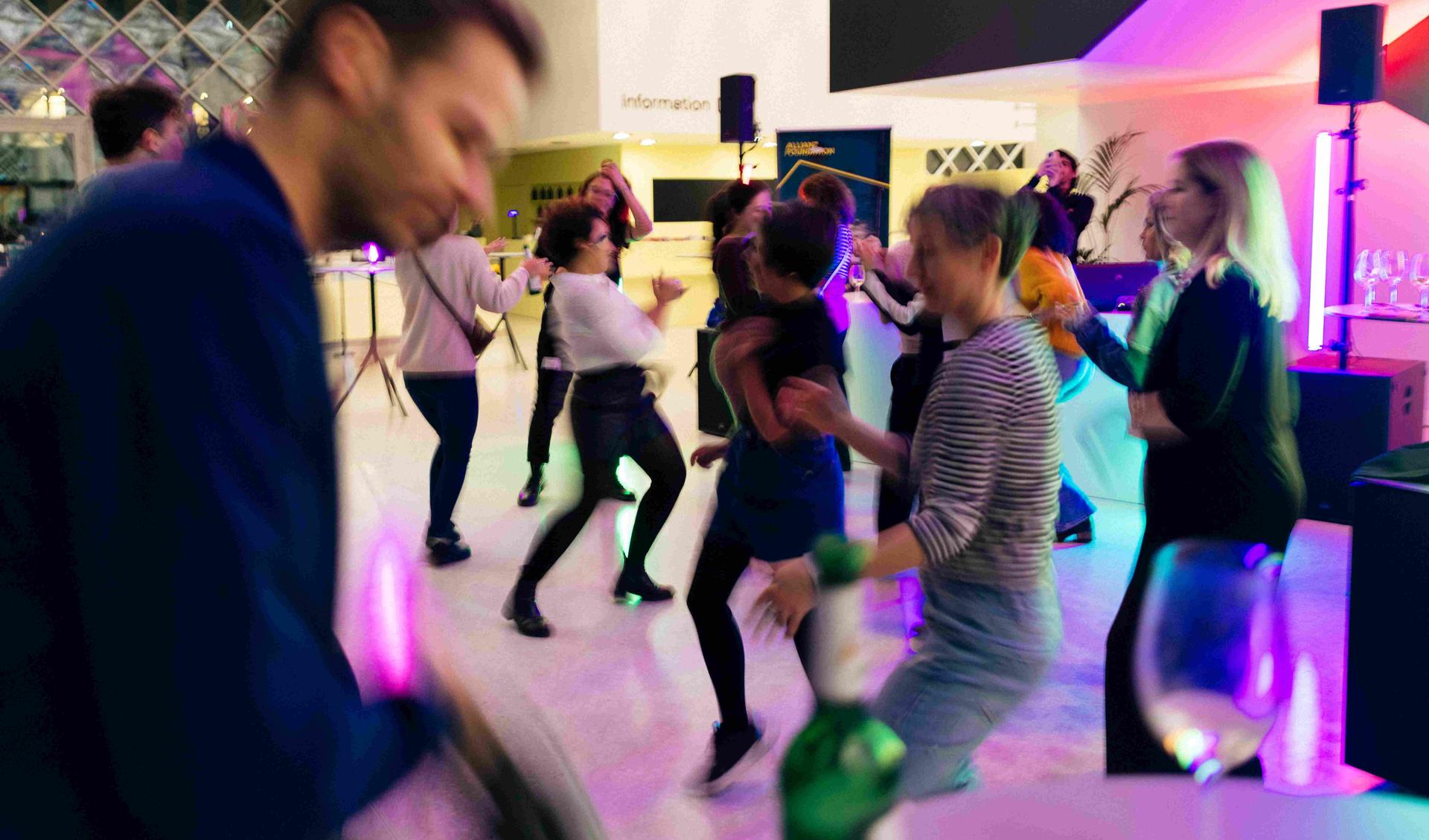
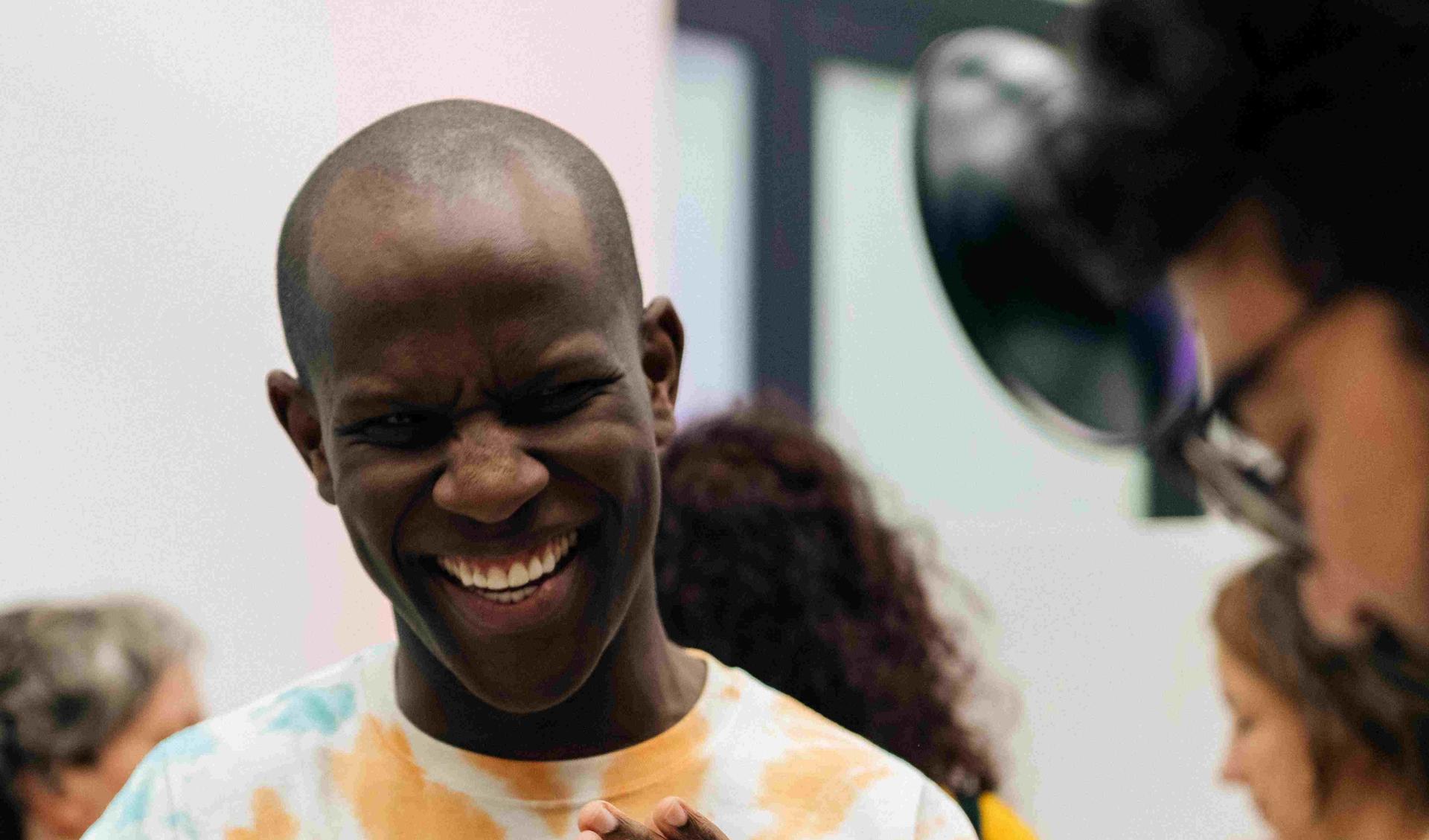
Allianz Foundation Summit 2023 © Leander von Thien
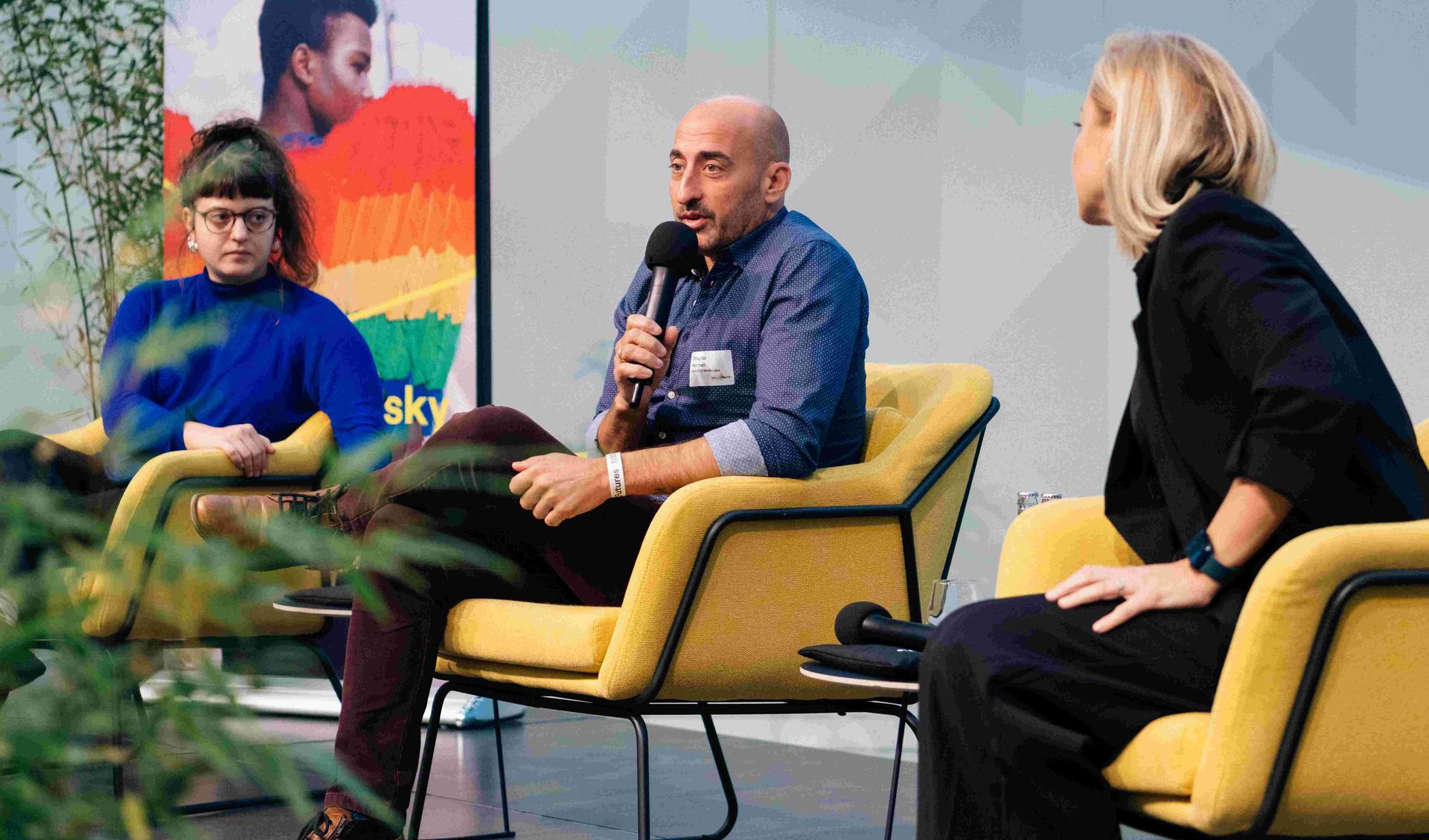
Allianz Foundation Summit 2023 © Leander von Thien
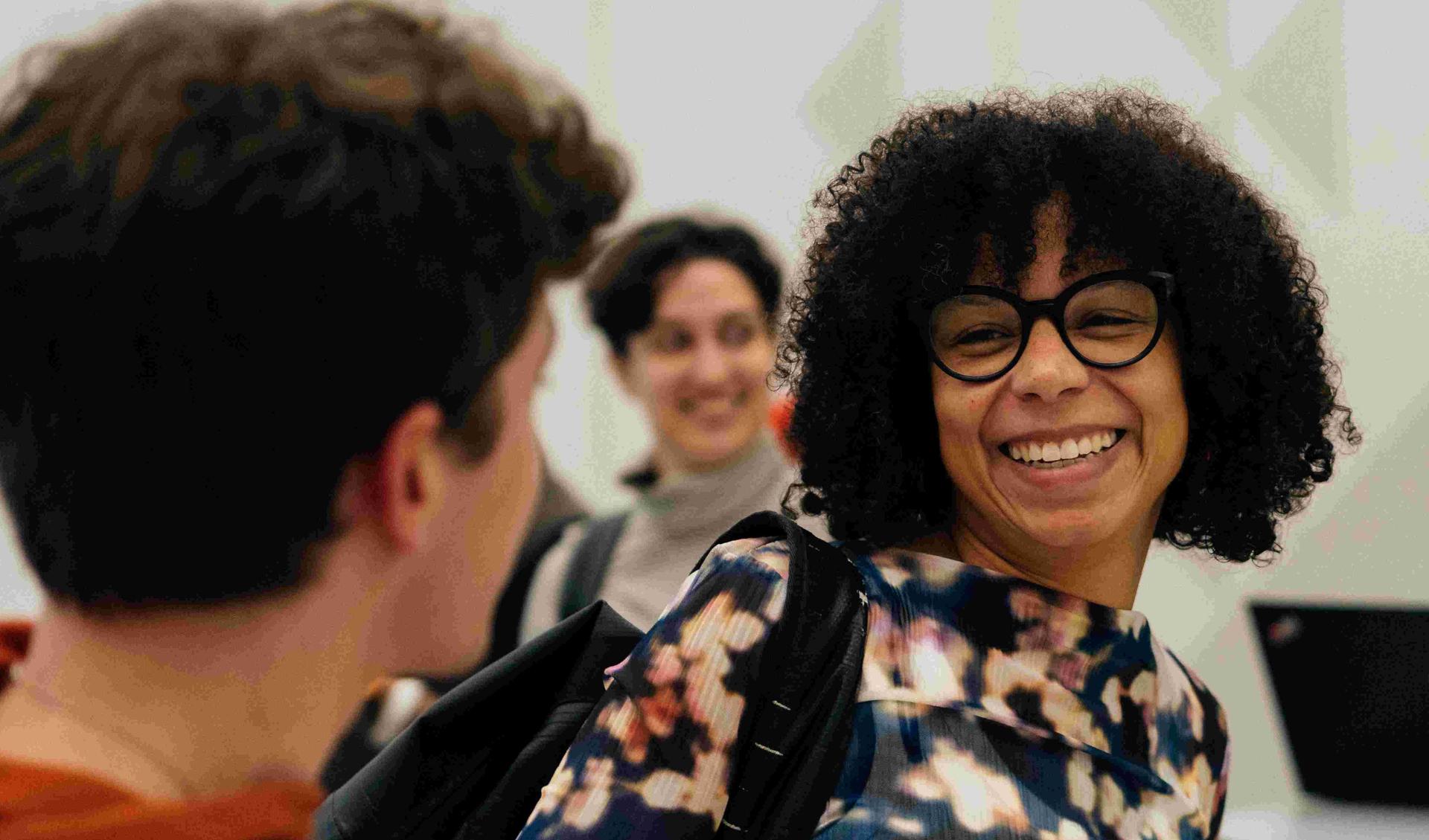
Allianz Foundation Summit 2023 © Leander von Thien
Further Highlights in 2023
Funding Program

Fellows
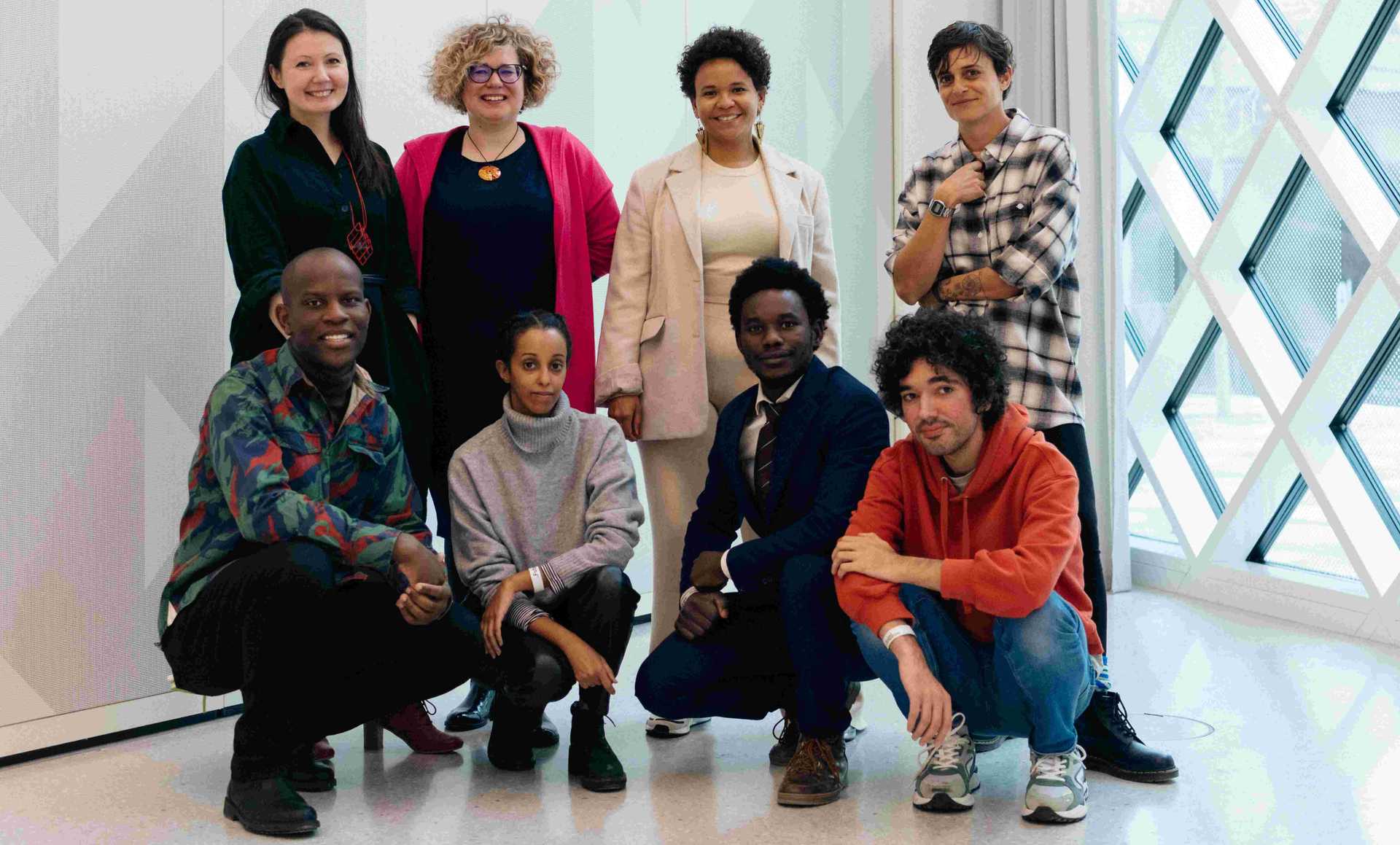
Next Generations Study
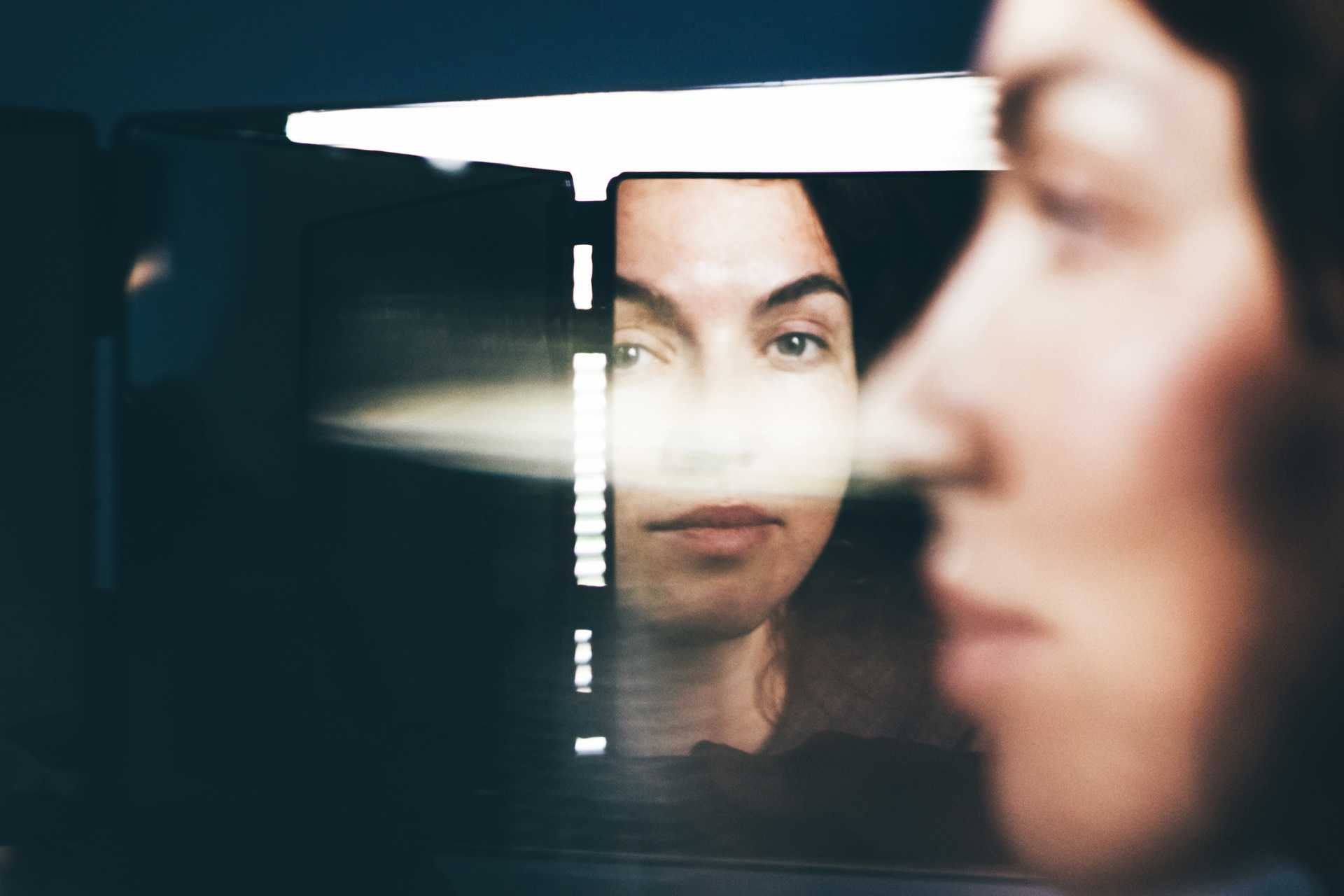
Selected Events
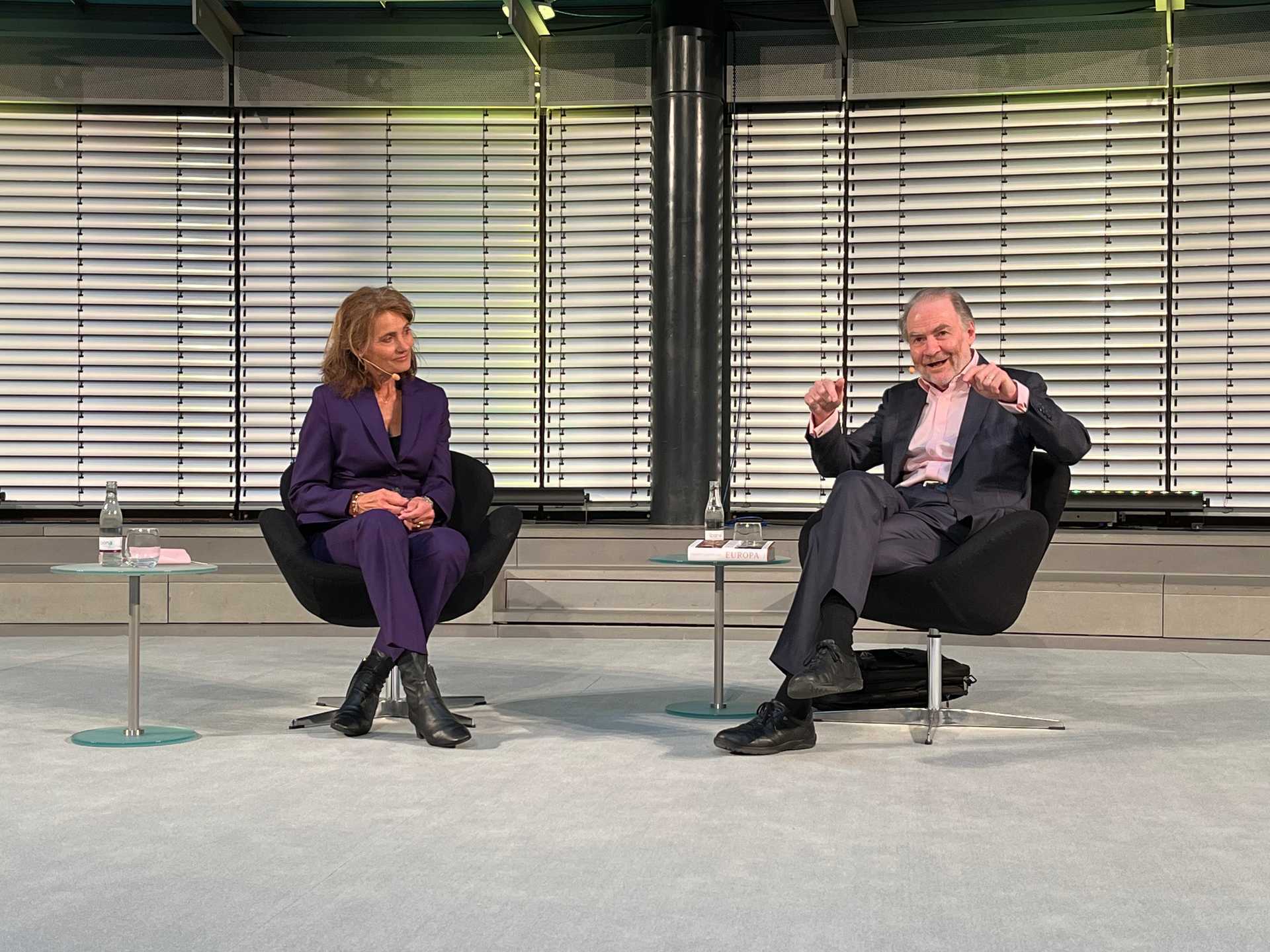
Europe: A Personal History
On May 15, 2023, historian Timothy Garton Ash presented his book "Europe: A Personal History" in a conversation with journalist and Eastern Europe expert Katja Gloger at the Allianz Forum. A passionate European, Ash refused to accept the division of the continent even before 1989 and fought against Brexit until the end. Thus, the discussion centrally focused on how Europe can be preserved despite existential crises such as the Russian war of aggression against Ukraine and how it can deal with its complex historical legacy between democracy and imperialism. The event took place in front of over 300 attendees at the Allianz Forum in Berlin and was organized in cooperation with the International Literature Festival Berlin.
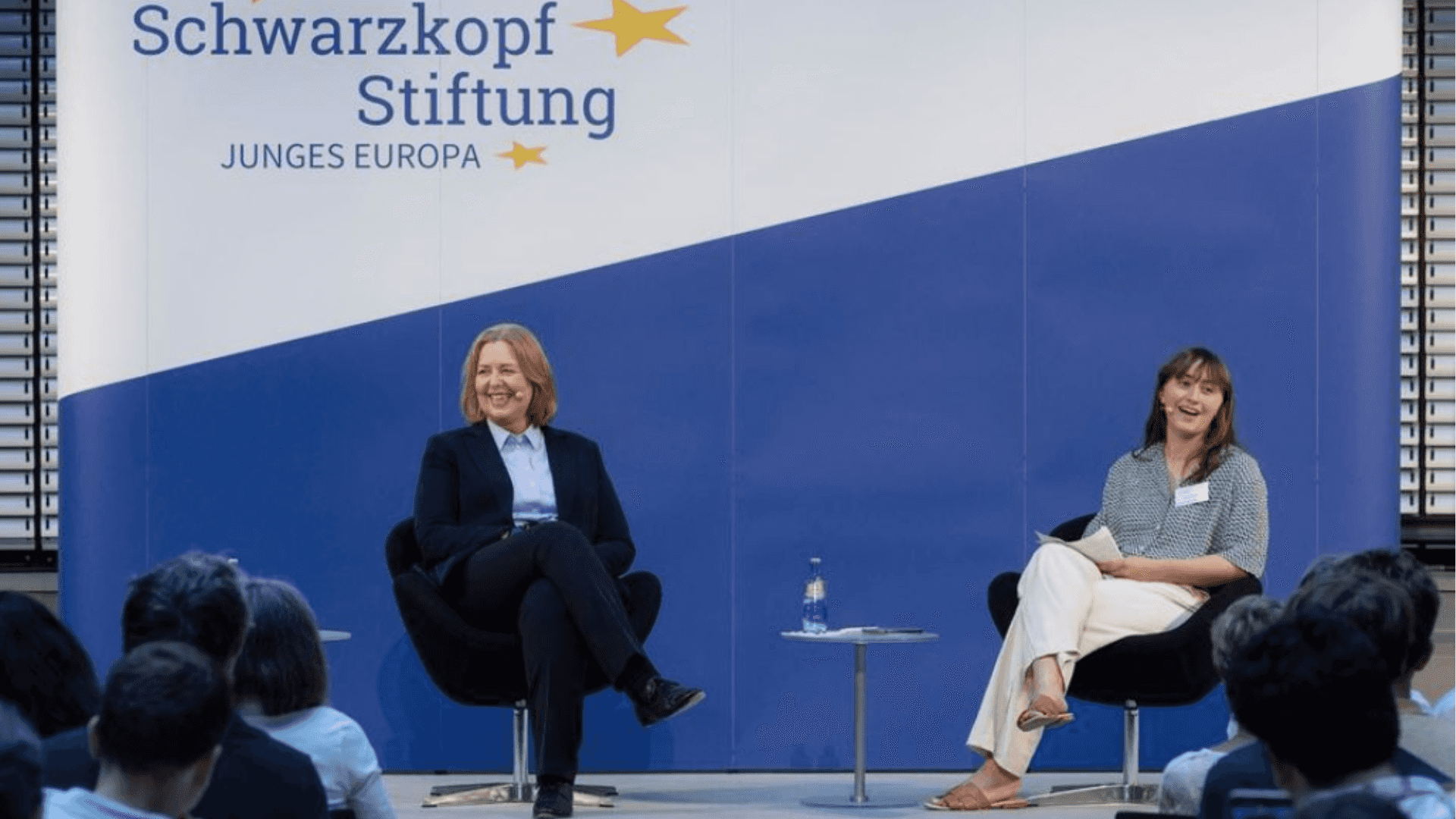
Democracy Education and Youth Participation in Times of Crisis
Youth participation means giving young people the opportunity to shape society according to their ideas by actively taking part in planning and decision-making processes. Together with school groups and German Bundestag President Bärbel Bas, the following questions, among others, were discussed: What needs to change so that more young people become interested and engaged in democracy in Germany and Europe? How and where should democracy education be expanded? What can parties, parliaments, and politicians do to grant the younger generation more say?
The event at the Allianz Forum was held in cooperation with the Schwarzkopf Foundation Young Europe, Youth Decides, and the Lotto Foundation Berlin
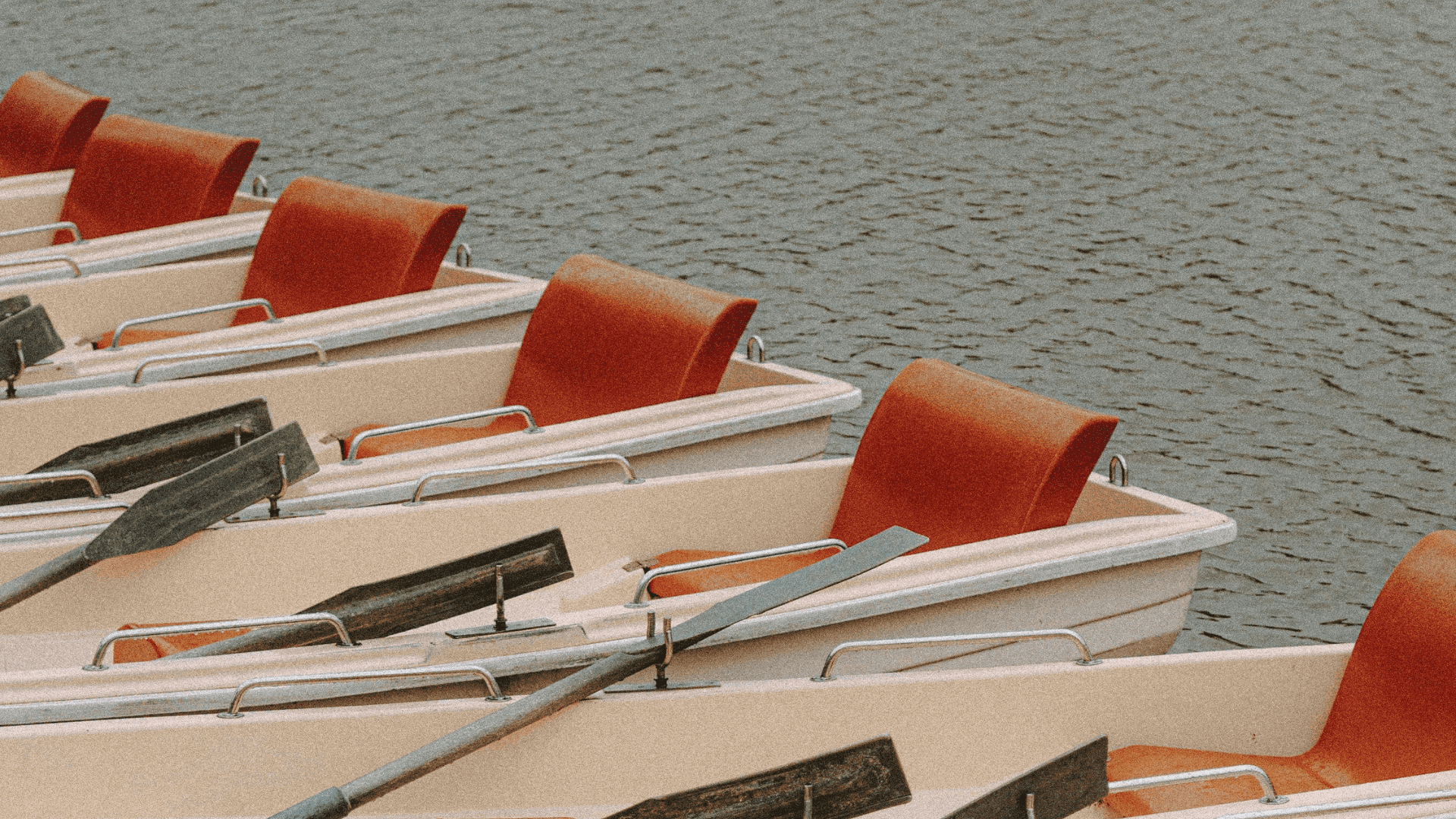
Chapter 03
The Allianz Foundation
Flagship Programs
We had already set up three Flagship Programs in 2022 to implement our vision. They complement the Foundation’s Funding Program: the Allianz Foundation Fellows Program, which supports individuals; the Allianz Foundation Hubs, multi-year institutional cooperations with regionally networked partner organizations that promote transformation; and the Allianz Foundation Study, the researchseries of the foundation. We continued to work on these programs throughout 2023, and first concrete projects were launched. In addition, we brought together our project partners, Fellows, Hubs and other committed risktakers from across Europe for the first time. The Allianz Foundation Summit prepared the ground for closer cooperation within our network.
0 m euros
Investment in operative activities in 2023
0 euros
Allianz Foundation Hubs
0 euros
Allianz Foundation Research Program
0 euros
Allianz Foundation Fellows
0 euros
Allianz Foundation Summit
Operative Program Highlights in 2023
Allianz Foundation Study
The Allianz Foundation Study series delivers data and insights from which Europe’s risktakers in civil society and the fields of culture and politics can derive concrete benefits.
The 2023 series encompassed the following:
- Ten interactive Allianz Foundation Future Labs with more than 100 civil society organizations from 10 European countries on developing solutions to encourage more civic engagement.
- The publication of the first Allianz Foundation Next Generations Study – entitled “The Movers of Tomorrow?” – a representative survey of 10,000 young adults in Europe that investigated how young people envisage a liveable future and what they are prepared to do to achieve it.
- The first two Allianz Foundation Future Dialogues in Athens and Rome attended by 36 civil society and political leaders who discussed ways to achieve more socially just climate action.
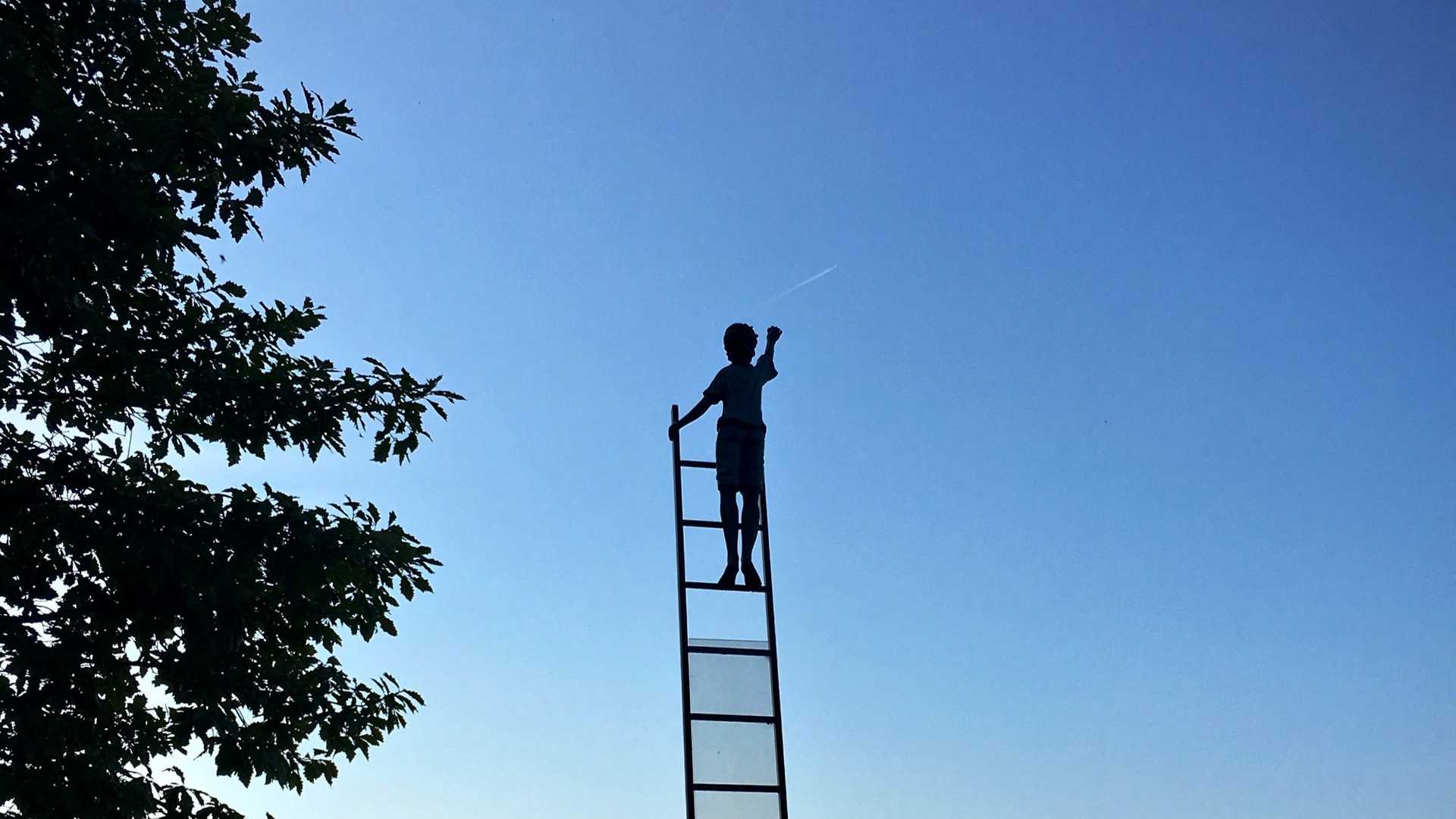
European Future Labs
Between February 24 and March 30, 2023 the Allianz Foundation organized seven Future Labs in seven European cities – Athens, Berlin, Istanbul, London, Palermo, Prizren and Warsaw – as well as three cross-border Online Labs.
The Future Labs are a place where risktakers from across Europe and the Mediterranean region can network, share ideas and learn from one another. The interactive workshops brought together more than 100 civil society leaders working in the fields of climate action, social justice, art, culture and the media.
Participants discussed some of the most pressing issues of our times and came up with innovative solutions to the following questions: What conditions need to be put in place to increase civic engagement in Europe? How can more people be encouraged to get involved in issues such as social justice, open societies and a liveable planet?
The results produced at these workshops were summarized in a Future Lab Report that was published on October 30,2023. The Report summarizes the most promising approaches and presents practical information for civil society, foundations and politics. We made significant changes to our Foundation Strategy based on this Report.
Next Generations Study
The Allianz Foundation and the SINUS-Institut collaborated on the first Engagement Study to find out how young adults imagine a liveable future and what they are prepared to do to achieve it by surveying 10,000 young adults (aged between 18 and 39) in Germany, Greece, Italy, Poland and the United Kingdom. Entitled ‘The Movers of Tomorrow?’ the study was published on October 30, 2023. More than 400 media reports reached more than 60 million people in the five countries studied.
The study reveals that young people’s perspective on the future is often one of disillusionment. Many young Europeans believe that society will become less just, more unsafe and more divided going forward. The young generations are unsure about who will lead society into a safe, just and climate-friendly future. They do not trust current political, business and civil society leaders to make the necessary changes.
Although economic, political and social conditions differ across Europe, there are a number of things young adults agree on: Almost three quarters of those surveyed believe that a robust social welfare state, stable prices and a strong social safety net are the most important foundation of a society fit for the future. In addition, 52 percent believe that equal opportunities, climate action and environmental protection are at least equally as important.
Despite significant anxieties about the future, Generations Z and Y are optimistic when it comes to climate action: Almost two thirds of young Europeans are confident that the fight against climate change can be won. Sixty-eight percent of those who are concerned about global warming have already been active in this area in some way, for example by making donations, signing online petitions or making more sustainable purchasing decisions.
Just over half of all the young people surveyed are prepared to do more for a just and green future. However, many are reticent to get involved because they simply do not know what they can do. This is where politics and civil society need to step in to rebuild trust and pave the way for more people to do their bit.
Future Dialogues
The Future Dialogues were born out of the Future Labs. This new exchange format is the Foundation’s response to the needs of the more than 100 risktakers who came together at the Future Labs. Even those who are involved in a number of networks often lack contacts in the realms of politics and administration – and many feel the need for more direct dialogue.
The idea behind the Allianz Foundation Future Dialogues is to provide a space for an open exchange based on trust between civil society and the political realm with the aim of countering looming social divisions and promoting joint action.
The first two Future Dialogues were held in November 2023 together with our partners ECCO in Rome and Eteron in Athens. Thirty-six political and civil society leaders discussed what is needed in addition to civic engagement to ensure a socially just climate transformation. The results of the Allianz Foundation’s first Engagement Study provided the basis for this debate.
Allianz Foundation Fellows
With their Fellows Program, the Allianz Foundation supports individuals who are committed to creating a liveable world and are willing to take risks to do so. They rethink traditional concepts and cross disciplinary boundaries to test new ways towards a fairer future—artistically, scientifically, in civil society, in defending human rights, as well as in environmental protection or journalism.
The program aims to give them the freedom to independently and innovatively engage with issues of justice, develop solutions to social problems, and implement new ideas—particularly at the intersection of the urgent societal challenges we face. The fellows connect with each other and become part of the foundation's Europe-wide network. The program includes both direct individual support from the Allianz Foundation as well as collaborations with partners.
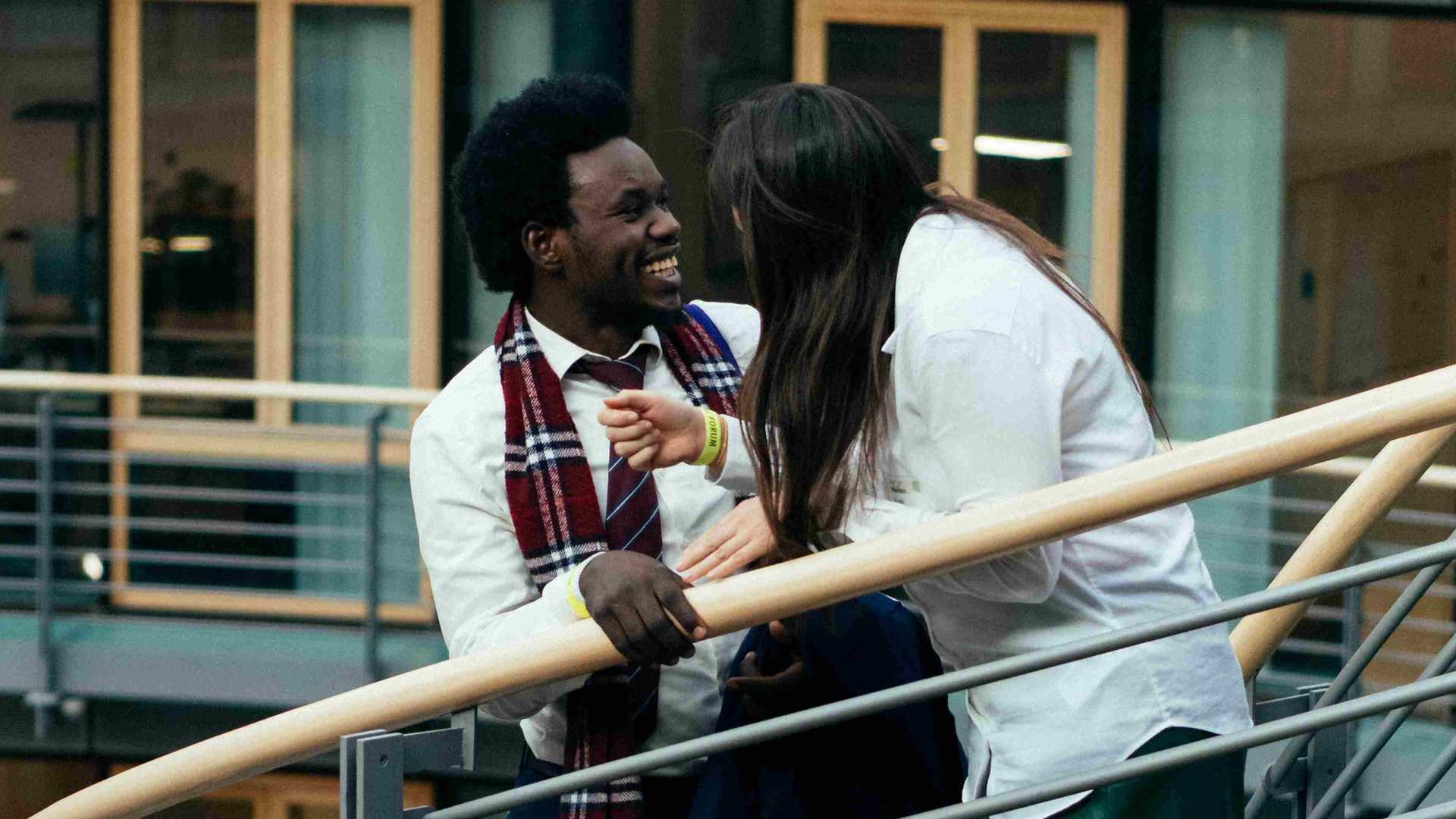
Supporting Individuals
The response to our call for individual funding was overwhelming. Within a few weeks we received around 900 high-quality applications from 68 countries, the majority of which were aligned with the Foundation’s goals. This positive response confirms that our program is on the right track and that there is an enormous need for individual funding. Nevertheless, we were only able to consider only a proportion of the applications submitted.
Together with our Board of Trustees and specialist juries we chose 12 people who work at the points where our strategic areas intersect.
Individual funding was first paid out in autumn 2023 and will continue over a period of 10 months. Fellows receive a monthly grant and in addition, they receive support from the Allianz Foundation Team and become part of the Allianz Foundation Network – starting with the Allianz Foundation Summit as a kick-off event.
Find out more about some of the Fellows here.
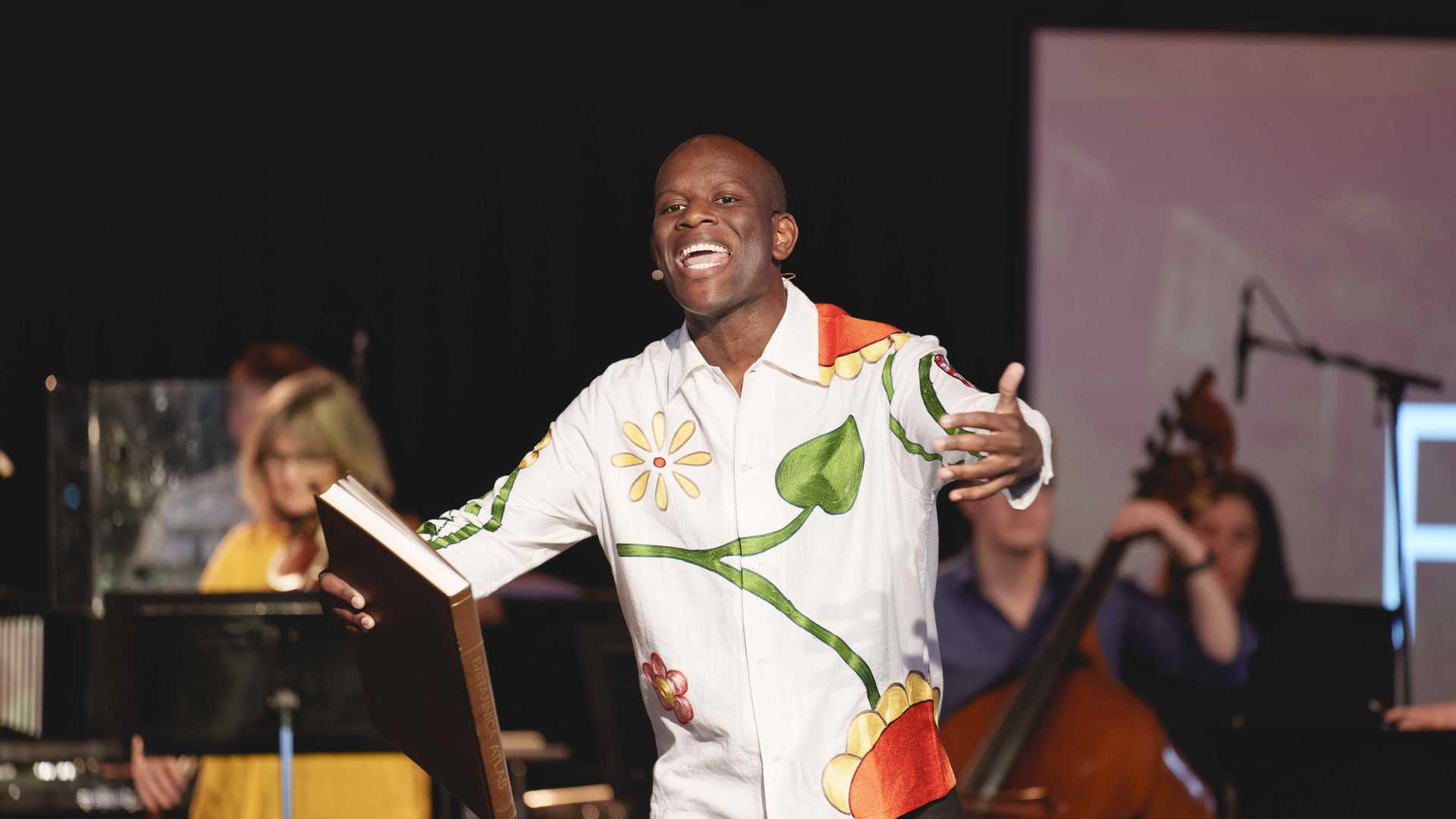
"A foundation that has the arts at is core is very precious, especially one that actively invites dreams, ideas, creativity and collaboration to flourish all over Europe. We need art, we need cooperation, or else we’ll fail future generations. "
Love Ssega, Allianz Foundation Fellow
about the Allianz Foundation (© Andy Paradiese)
Risktakers Fellowship
In 2023 we also launched the Risktakers Fellowship together with our partner SUPERRR LAB. Twelve people were selected who study the crises of our times and develop ideas for a better future, be it online, by way of activism, art or civil society engagement.
The program supported 10 projects, including the Romnja Feminist Library, a platform for critical feminist knowledge. It provides a safe space to increase the visibility of the many Roma authors, researchers, activists and students who find it difficult to access the world of academia.
The Fellows each received a grant of 10,000 euros. They can access an additional budget of up to 2,000 euros to cover expenses linked to the fellowship. An additional 500 euros in Community Flash Grants was available. Besides receiving financial support, the Fellows are part of a vibrant community across Europe and beyond. They all met twice in Berlin, where they had the opportunity to work together and take part in our Allianz Foundation Summit.
Information about other projects are available here.
Datteltäter Academy
The Datteltäter Academy , which the Allianz Foundation funded in 2023, is a Fellowship Program for content creators and media newcomers with a migration background. It aims to provide a safe space for Fellows to work in, to disrupt labels, encourage mutual learning and enable the grantees to tell their stories - on their own terms and in their own unique way.
Tarabya Cooperation Grants
The Turkish–German Coproduction Grants for the Tarabya Cultural Academy are at least equally as important. They are awarded in cooperation with the Allianz Foundation. The grants provide access to a residency program for tandems of artists and creative professionals from Turkey and Germany. The Cultural Academy, based on the grounds of the historic summer residence of the German Ambassador in Tarabya on the European side of Istanbul, is run by the German Embassy in Ankara and curated by the Goethe-Institut. The grantees are supposed to use their time in Tarabya to gain inspiration for and continue with their work.
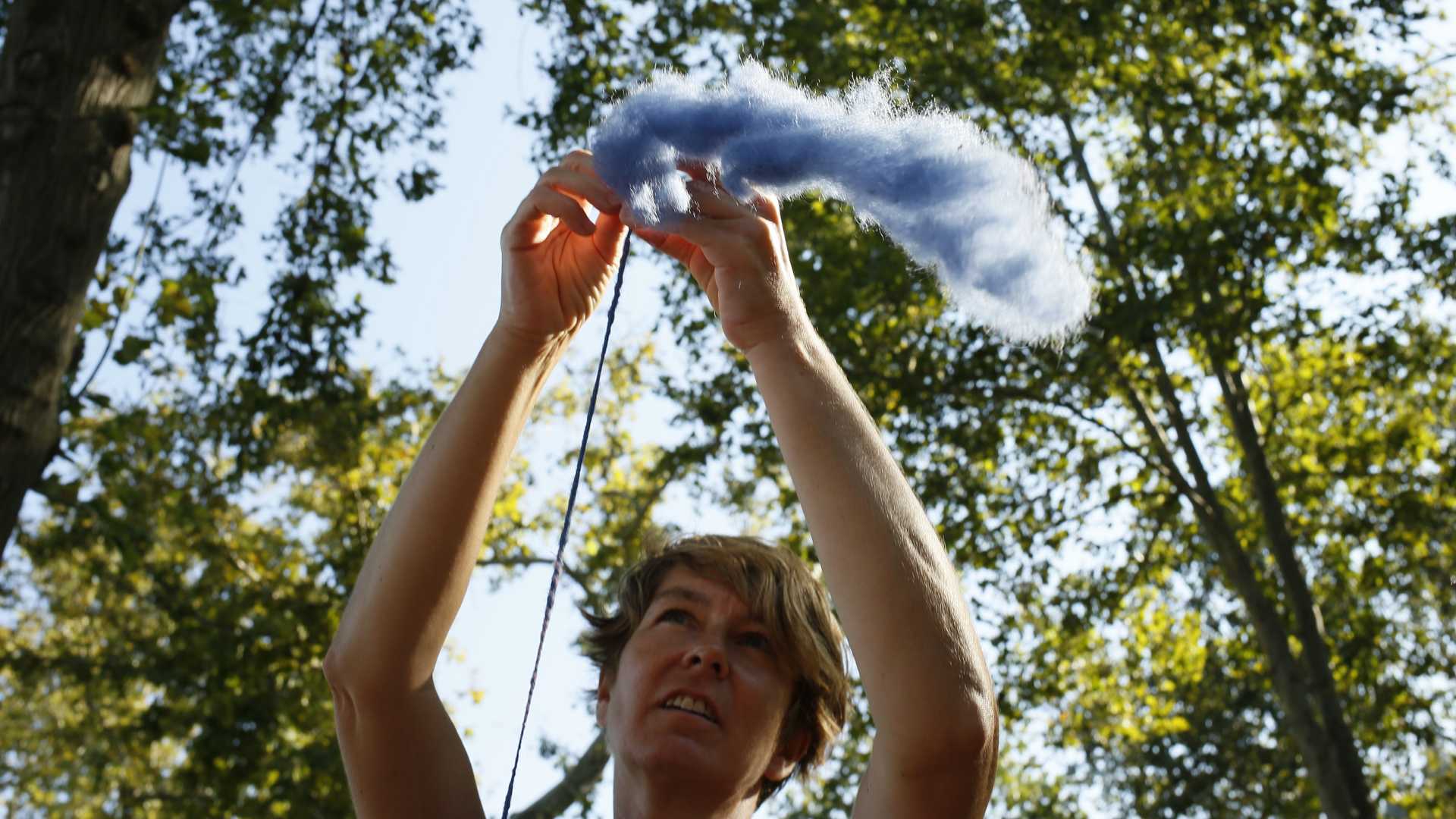
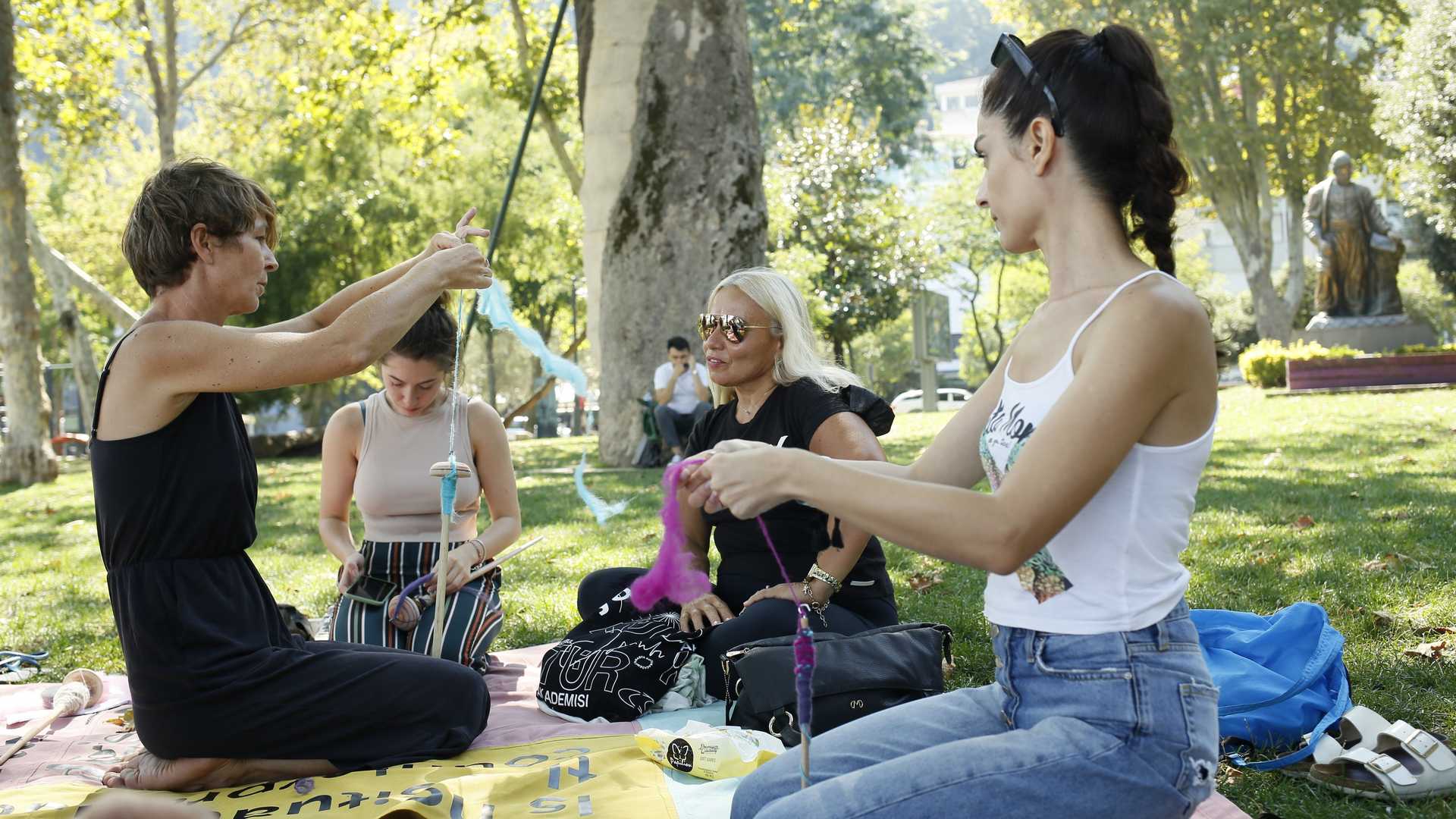
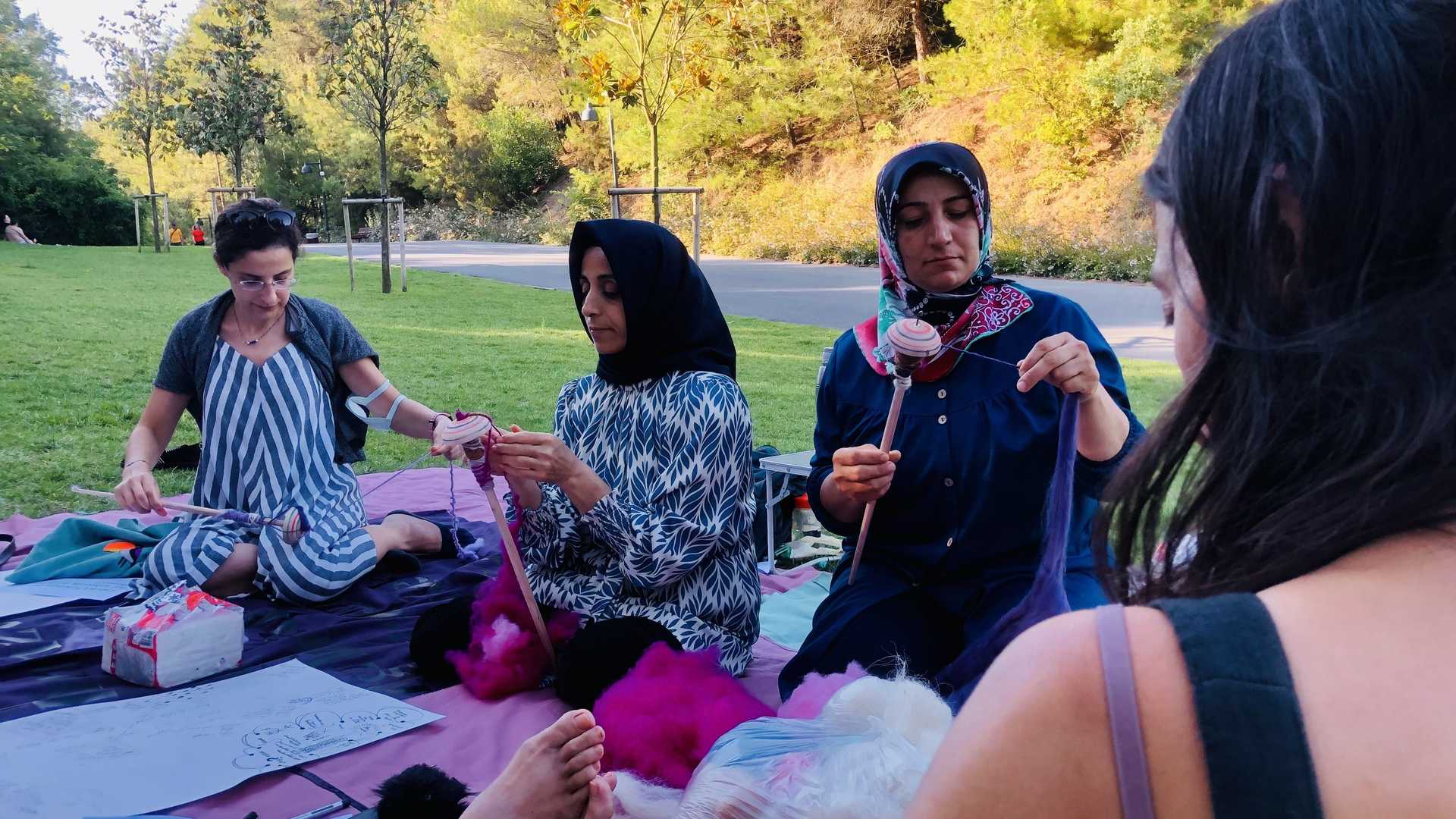
Allianz Foundation Hubs
The Allianz Foundation Hubs represent the Allianz Foundation’s Europe-wide, cross-border and -discipline approach. The multi-year institutional collaborations with regionally networked partner organizations – the Hubs – foster a decentralized style of working across borders and disciplines while at the same time providing the opportunity to respond to local challenges.
Each Hub can use the multi-year structural funding to develop at the institutional and program level as well as to establish regional links with partners and grassroots movements. The Hubs also cooperate with each other on joint projects and programs, through peer learning and staff exchanges. The vision is one of an organic, vibrant ecosystem that is both capable of learning and more than the sum of its nodal points.
2023 was a very significant year for the Allianz Foundation Hubs in terms of the highlights individual partner organizations experienced, the joint work on programs and the network being completed.
Art Exhibition in Kosovo
The fourth Edition of the Autostrada Biennale once again showcased the socially engaged, bottom-up approach of our Hub in Kosovo. The idea is that internationally relevant art can be closely linked to local communities by sharing ideas with residents of all ages and social strata at the local level. It gained wide recognition and had more than 80,000 visitors. The magazine Frieze named the Biennale one of its Top Ten Shows in Europe in 2023.
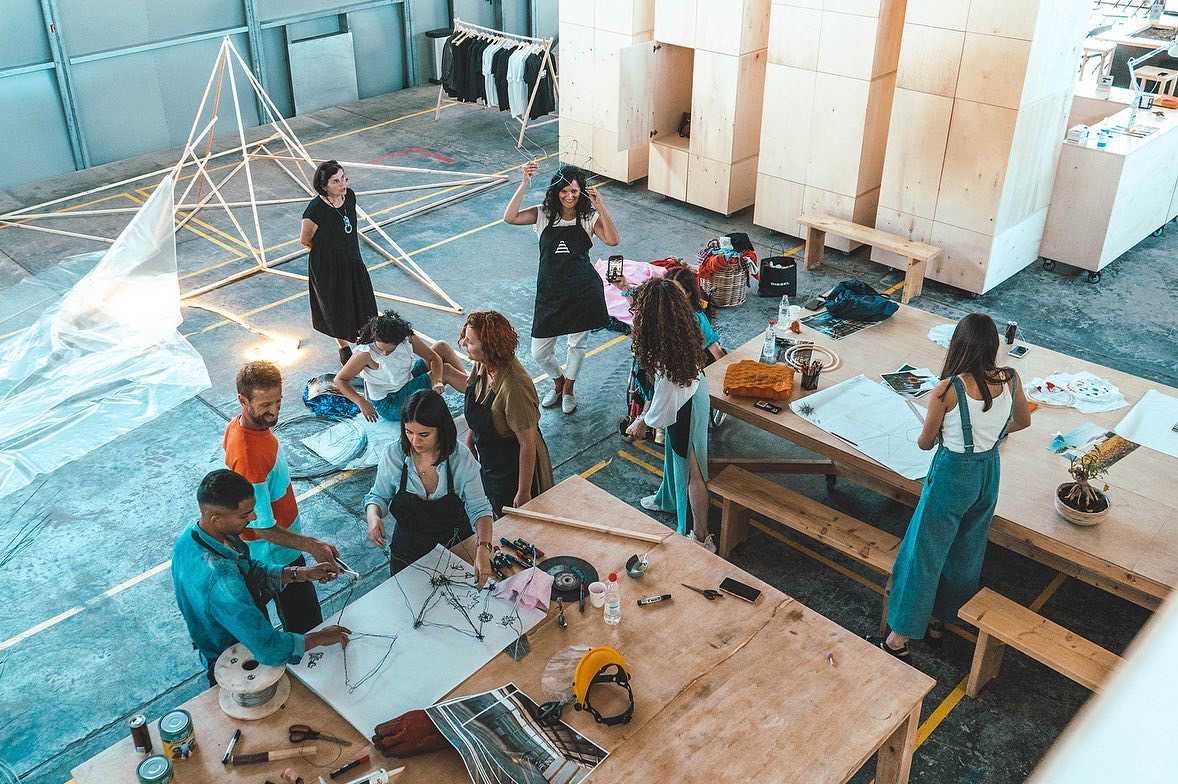
"The support of the Allianz Foundation has been very important for the continued growth of the Autostrada Biennale, enabling the expansion of cultural spaces in response to community needs for more inclusive and sustainable programs."
The Autostrada Biennale Team
(© Autostrada Hangar)
Cooperation Between the Hubs
In 2023 the Residency on the Road Fellowship also proved how powerful the networked approach adopted by the Hubs is. Nine participants at an event entitled “Decolonizing Food: Water, Land and Heritage” from the world of art, agriculture and academia studied issues around nutrition and environmental protection in Kosovo and Istanbul and on Sicily. Three art projects were subsequently realized as part of the cooperation project’s production stage.
Growing Hubs Network
Two new hubs in Spain and Belgium completed the network in 2023. At three locations in the northern Spanish mountains, in Madrid and on Mallorca, INLAND weaves together artistic and ecological practices so as to ask questions around the relationship between the center and the periphery. Recyclart, based in the Molenbeek district of Brussels, is a multidisciplinary art center that unites socially just economic activity, underground art and a cosmopolitan restaurant.
Here is a full list of all Allianz Foundation Hubs:
Autostrada Biennale, Prizren, Turkey
Fondazione Studio Rizoma, Palermo, Italy
Postane, Istanbul, Turkey
INLAND, Spain
Recyclart, Brussels, Belgium
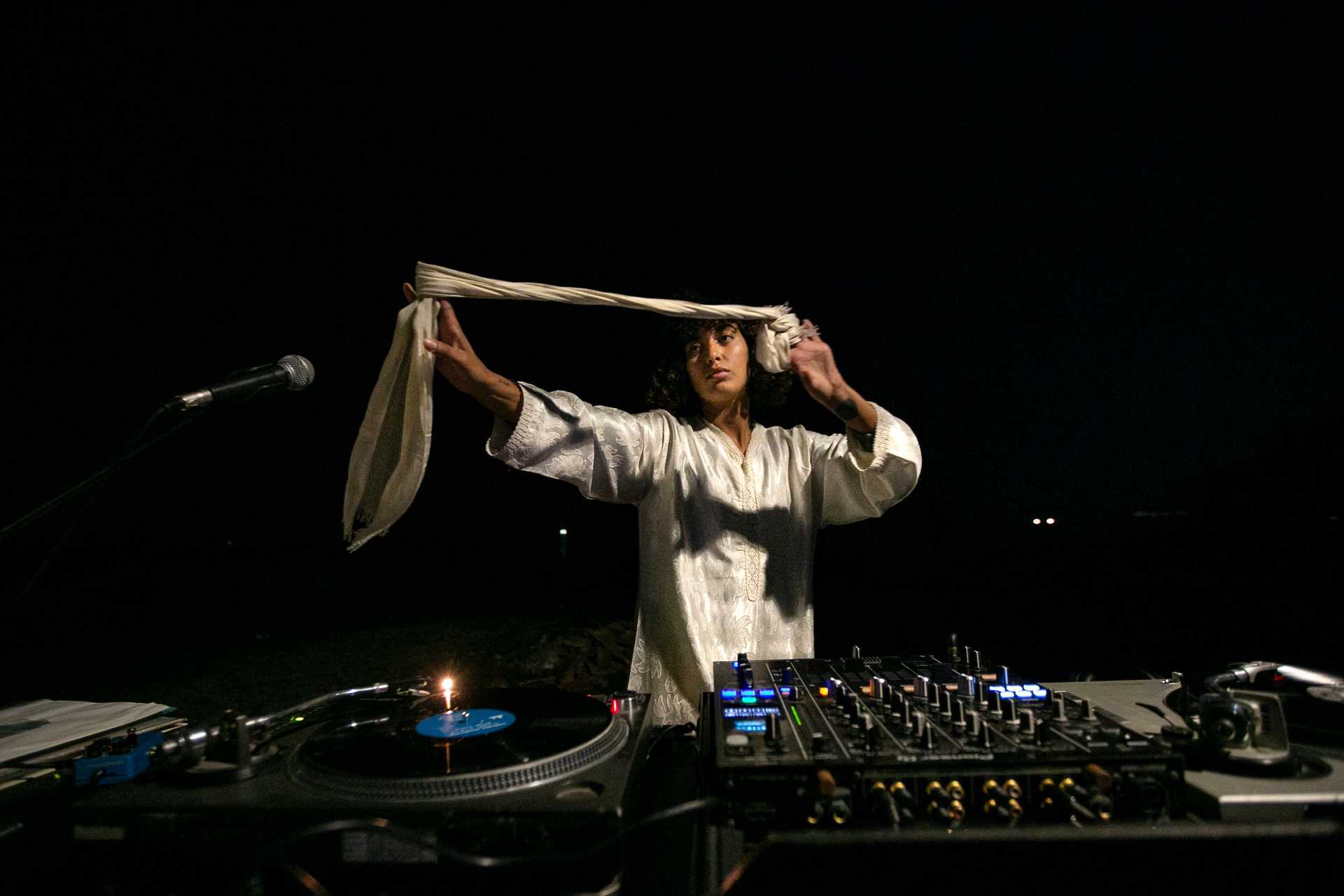
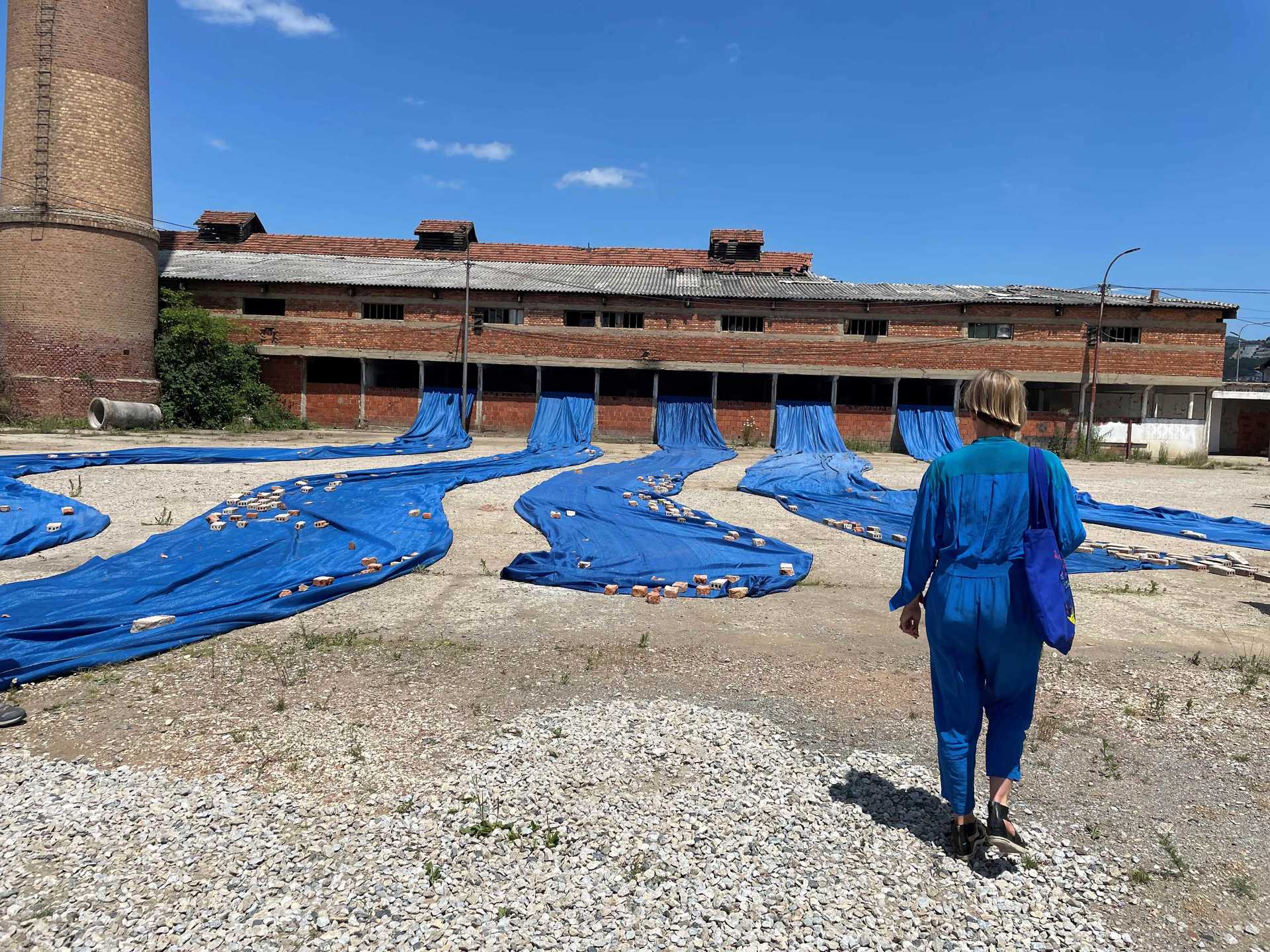
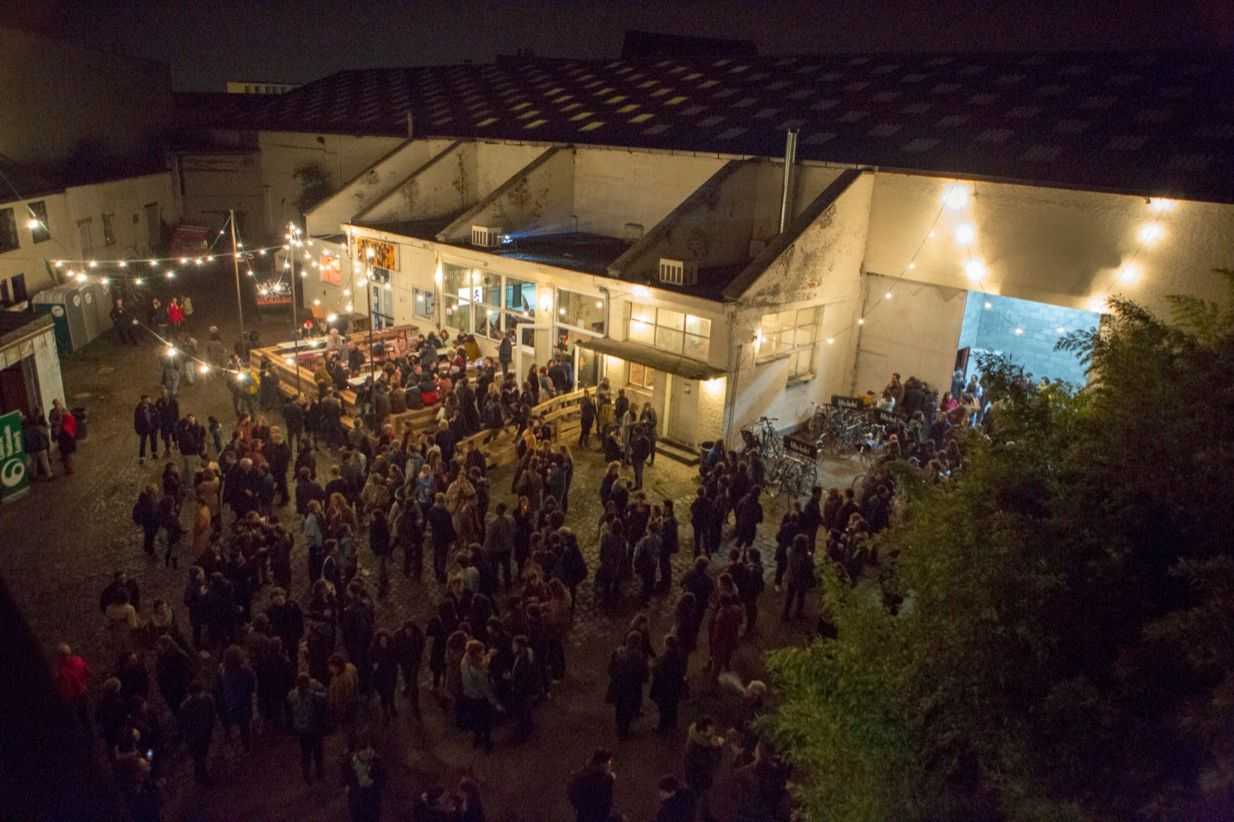
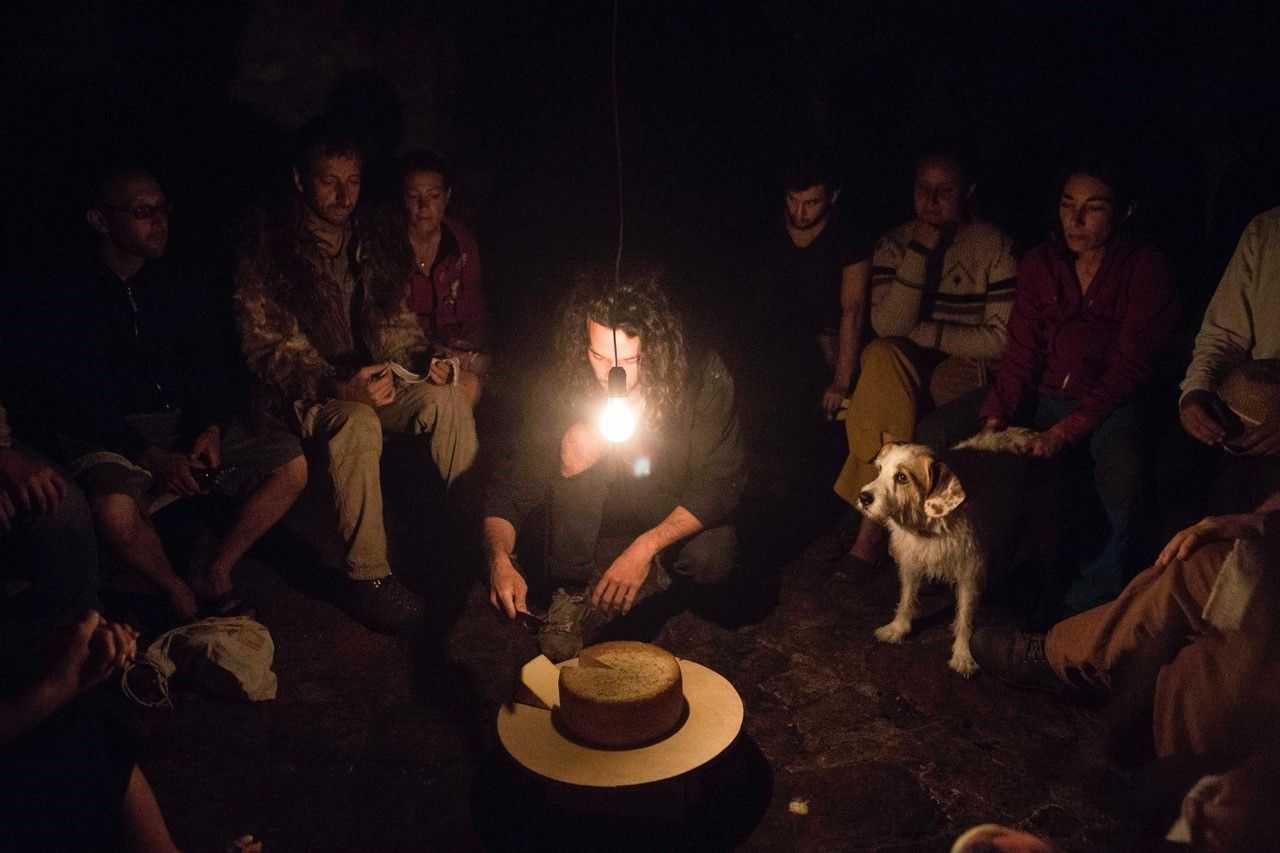

Chapter 04
Allianz Foundation Funding Portfolio
In its strategic areas People, Society and Planet, the Allianz Foundation supports projects in Europe and the Mediterranean region that address civil society, ecological or artistic/cultural issues and aim to bring about systemic change. We, first, support these initiatives through our regular Allianz Foundation Funding Program and, second, we fund partners through third-party funded and cooperation projects and as part of specific collective funding calls and measures.
The impact that climate change is having, the discrimination people experience and the threats to free, diverse and democratic societies do not stop at national borders. That is why we at the Allianz Foundation invest our commitment within a Europe-wide network of partners and funding projects. The focus remains on Europe. However, the Foundation’s mission and our responsibility also obligate us to continue expanding our horizons. That is why the Allianz Foundation is also entering into an increasing number of cooperations with individuals and organizations based outside of Europe, especially in politically and socially unstable countries in the Mediterranean region.
Last year the Allianz Foundation and its funding partners were engaged in activities in 32 countries. We provided a total of 4,6 million euros in funding to 52 projects in 2023.
| Projectname | Details |
|---|---|
| Radical Rituals society | Details |
| Limani society | Details |
| This is what a generation sounds like society | Details |
| The material dimension of clouds planet | Details |
| Berlin Governance Platform planet | Details |
| School for dissident friendship people | Details |
| Cultures D'Avenir society | Details |
| Chios Music Festival society | Details |
| Ecology and Theater Junction people | Details |
| JIVE Klima planet | Details |
| Schlüsseltechnologie für Klimaschutz in Gebäuden: Die Wärmepumpe im Mehrfamilienhaus in der Praxis planet | Details |
| Dezernat Zukunft:_Spur Green Transition planet | Details |
| Jüdisch-muslimische Solidarität society | Details |
| Zad: Miles for Connection people | Details |
| Smart prisons society | Details |
| Europasinfonie society | Details |
| KomPAD – Kompetenzzentrum Anti-Schwarzer Rassismus people | Details |
| May Ayim Fonds society | Details |
| Climate Transformation Italy planet | Details |
| Using the law to enforce human rights - new frontiers society | Details |
| CentrALT society | Details |
| Food Culture Days planet | Details |
| Renewables 2030 planet | Details |
| Emergency Exit - FreeSZFE society | Details |
| Festiwal Góry Literatury society | Details |
| Feminism Reclaiming Life people | Details |
| REACT people | Details |
| EU network for a just and sustainable food system transition planet | Details |
| Konteksty. Postartistic Congress planet | Details |
| Literature Beyond Borders society | Details |
| Klimaschutz braucht Vielstimmigkeit planet | Details |
| Glaciers Caravan planet | Details |
| Batailles des Rites - Kriegsweihe society | Details |
| Mothers – A Song for the Wartime people | Details |
| Milano Mediterranea society | Details |
| Mission Wertvoll planet | Details |
| De Structura people | Details |
| Clean Cities Campaign planet | Details |
| European Images society | Details |
| Outernational society | Details |
| Negotiating Peace society | Details |
| Rat für Digitale Ökologie: Die Gesellschaftspolitik der Digitalen Transformation & Parlamentarischer Salon planet | Details |
| Peatland Justice planet | Details |
| Activating EU law to protect LGTBQI+ peoples’ rights & empower activities people | Details |
| Refocus Media Lab people | Details |
| Wir können auch anders – Die Roadshow planet | Details |
| Narrative Change Academy people | Details |
| Re-think the challenge people | Details |
| Intersectional Climate Justice Europe people | Details |
| Artistic Approaches on Ecological Repair planet | Details |
| ‘COAST LINE(S) WANING’ All for a few extra sunbeds planet | Details |
Show more
Our Funding Program
In 2023 the Allianz Foundation Funding Program realigned and expanded its thematic focus, that is on its strategic fields of action (see previous chapter). Promoting equal opportunities (for empowered people), open, diverse and resilient societies (for open societies) and fighting climate change and preserving biodiversity (for a living planet) were key. The Funding Program explicitly sought out those projects that sit at the points of intersection between these three areas.
The total funding available in 2023 to individual projects receiving support was between
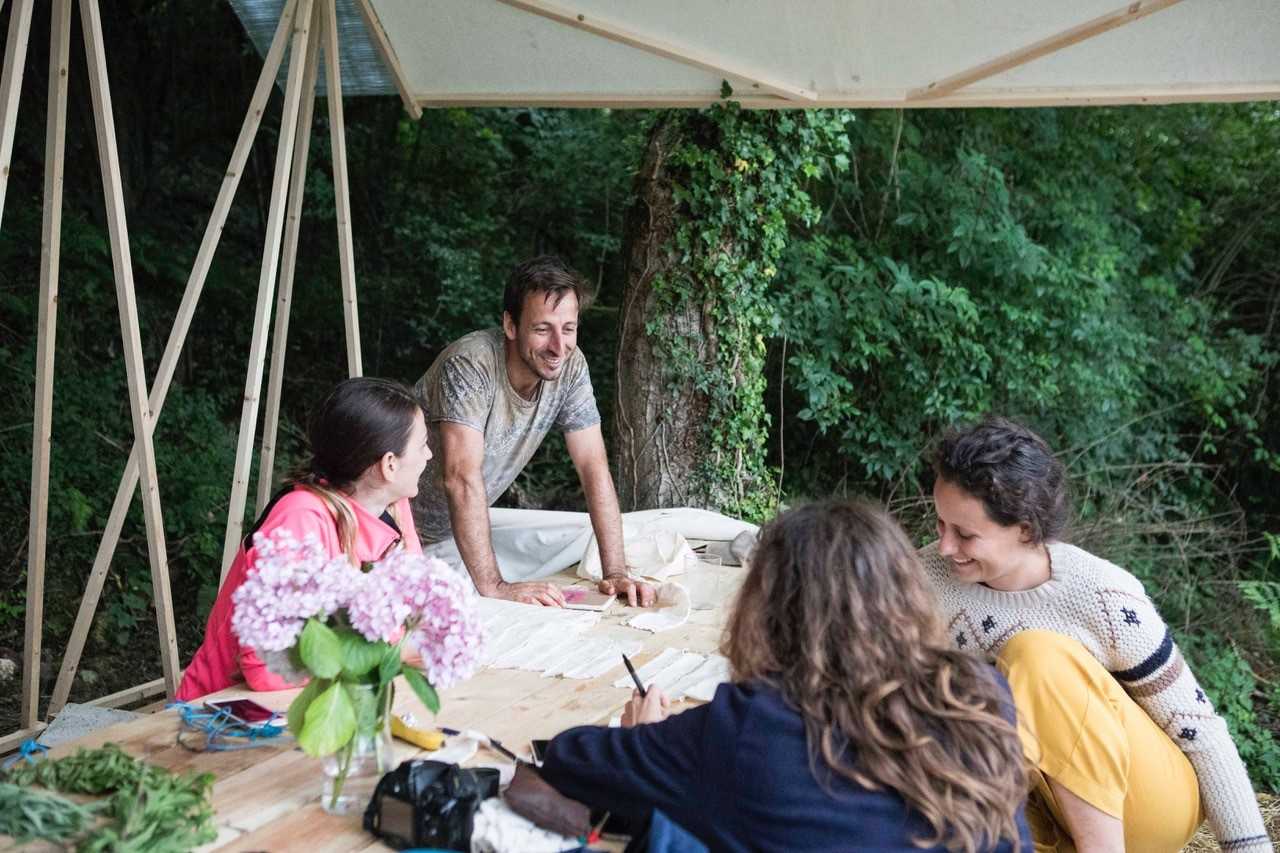
"A support structure that listens, understands and cares about a project’s ongoing work, that feels more like a nurturing companionship than a limiting and rigid rapport, is unusual and important."
Fernando Garcia Dory, INLAND
about the Allianz Foundation (© Marta Goro)
Examples from our Funding Program
PEOPLE
ReFOCUS Media Labs: "Nothing About Us Without Us"
ReFOCUS Media Labs is building a network of places of learning that teach media skills to asylum seekers and refugees. The initiative has already opened media schools on Lesbos, in Athens and in Krakow. Known as “Labs,” they offer participants a platform on which they can undergo further training, showcase their work and tell their stories. Courses are available on photography, audio and video production, graphic design and media processing. ReFOCUS produces feature film–length media content, cooperates with international media and is regularly involved in interactive formats and media art installations in school communities.
“Tens of thousands of teenage and young adult asylum seekers continue to flee war, persecution and extreme poverty. Crucial years of their education are lost while waiting for asylum, and, in turn, dreams and aspirations are compromised. We are fighting to change this reality by training students.”Sonia Nandzik and Douglas Herman, ReFOCUS Media Labs
SOCIETY
Negotiating Peace: how can peace be achieved?
Our project partner Qendra Multimedia brought together a diverse ensemble of European artists and groups for its “Negotiating Peace” theater production. This touring production project deals with the Dayton Agreement, the Good Friday Agreement and peace deals in the Middle East, as well as those few successful meetings that have been held between Kosovo and Serbia. And it raises the question of how Russia’s war against Ukraine could be brought to an end.
“Negotiating Peace” looks at the various dynamics that are at play in peace negotiations. Who is called to direct such a process? Do people actually reconcile once a peace agreement has been signed? Can there be collective forgiveness, or is forgiveness an individual act?
“If war has its demons leading people towards destruction and misery, what does peace have? Who is the antipode of the war demons?! Are they the peace emissaries? The political leaders who have the courage to sign peace agreements? Or the ordinary people, the survivors, who have paid the highest price of the war.”Blerta Neziraj, Director of Negotiating Peace
PLANET
IDDRI: Transforming the EU Food System
Equal access to healthy foodstuffs, fair workplaces at every stage of the supply chain and sustainable production – these are the goals of IDDRI, an independent research institute for sustainable development and international relations that works to transform EU food systems. The Allianz Foundation supports the think tank’s Agriculture and Food Policies Program. IDDRI provides a platform for dialogue between various interest groups and conducts research into the conditions and tools that could ensure that the realms of international relations and politics turn their attention to sustainably developing the food system.
“For food systems transformation to occur, significant changes need to be made to eating habits. ”Pierre-Marie Aubert, IDRRI Program Manager
Third-party Funded Projects & Cooperations
The Allianz Foundation also combines its own funding with funding from partner organizations so as to be able to meaningfully pool resources. Last year we launched the Talents for Tomorrow: Diversifying Foundations for Europe Traineeship Program in cooperation with the European Cultural Foundation. This multi-year programaims to diversify the philanthropic sector in Europe. The trainees each spend eight months working in one of the two foundations and then work shadow staff in the other. The program is set up so that other foundations will be able to join in going forward.
The European Climate Hub continued its work in 2023. The initiative, launched in 2022 in cooperation with the Climate Imperative Foundation, supports partner organizations that want to collaborate on implementing the European Green Deal and overcoming the climate crisis. Their common goal is a society that uses its resources efficiently and will be carbon neutral by 2050. This transformation is to be socially just and economically successful. The European Climate Hub supports projects that are active in the field of environmental protection, initiate concrete change on the ground, support progressive ideas and create new alliances in Europe.
The “A Participatory Planet” discursive project run by the Haus der Kulturen der Welt in Berlin was awarded Allianz Foundation funding in 2023 as well as third-party funding from Germany’s Federal Agency for Civic Education.

Third-party Funded: Heat Pumps Project
The “Key technology for climate protection in buildings: heat pumps in multi-family buildings in practice” project, which received funding from the European Climate Hub in 2023, aims to deliver sound facts on this much-debated issue. On the initiative of the Deutsche Umwelthilfe (DUH) working with the company HEAT GmbH, this project collates information on the use of heat pumps in existing apartment buildings and presents it to the public and politicians. The survey looks at where heat pumps can be used, technical obstacles and possible solutions when conflicts arise. Owners and housing companies are to be able to use the insights gained to install heat pumps themselves. The information can also provide the basis for better policy decisions when it comes to the use of this technology in buildings.
Climate Cultures Call
The Climate Cultures Call was launched as a special funding program when the new Allianz Foundation was established in November 2022. The funded projects took up their work in 2023. A non-exhaustive list of projects is available here.
The Climate Cultures Call sits at the point of intersection between climate action, culture and social justice. Initiatives that receive funding for example focus on the link between global warming and the social climate to gain the inspiration needed to come up with new cultural practices and ways of thinking. The Call was thus prototypical for the new Allianz Foundation’s strategic approach, and that is promoting change by taking a holistic perspective. We are convinced that is the only way to effectively overcome the climate Crisis.
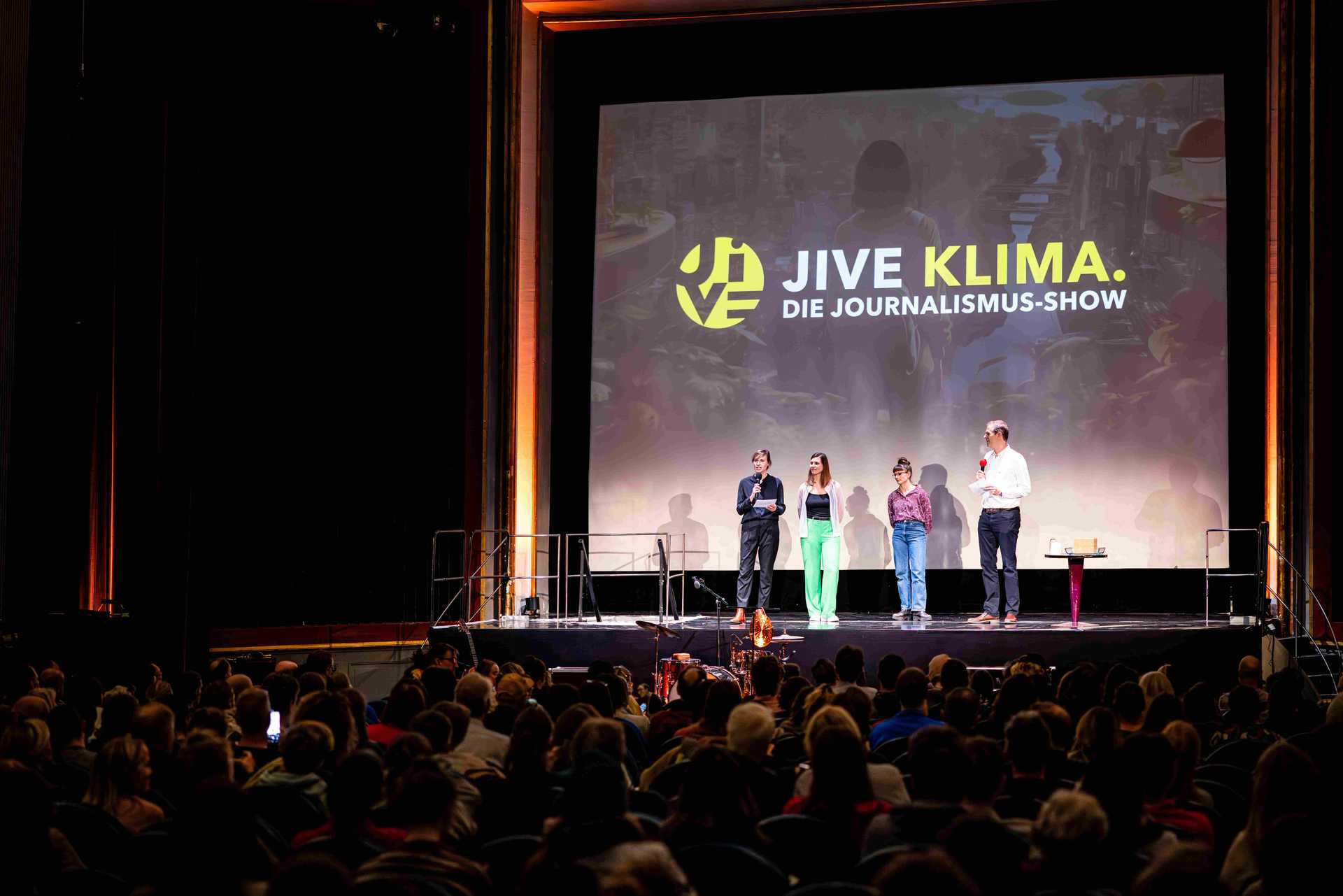
Projects Climate Cultures
The new JIVE Klima live journalism show premiered in Berlin in autumn 2023. The journalists on stage presented solution-oriented, imaginative ideas for more climate-friendly urban development. Their narratives were linked via artistic interludes. The event was organized by the CORRECTIV research center and the not-for-profit organization Headliner gUG.
The Glaciers Caravan is a journey at great altitude that teaches how dramatically and quickly our Alpine glaciers are shrinking as a result of climate change. It is an information and awareness-raising campaign in the Alpine regions of Austria, Italy and Switzerland run by Legambiente and Cipra. The project wants to create alliances for a new climate culture that are aimed at public administrations, local communities, economic players, tourists, the media and the general public.
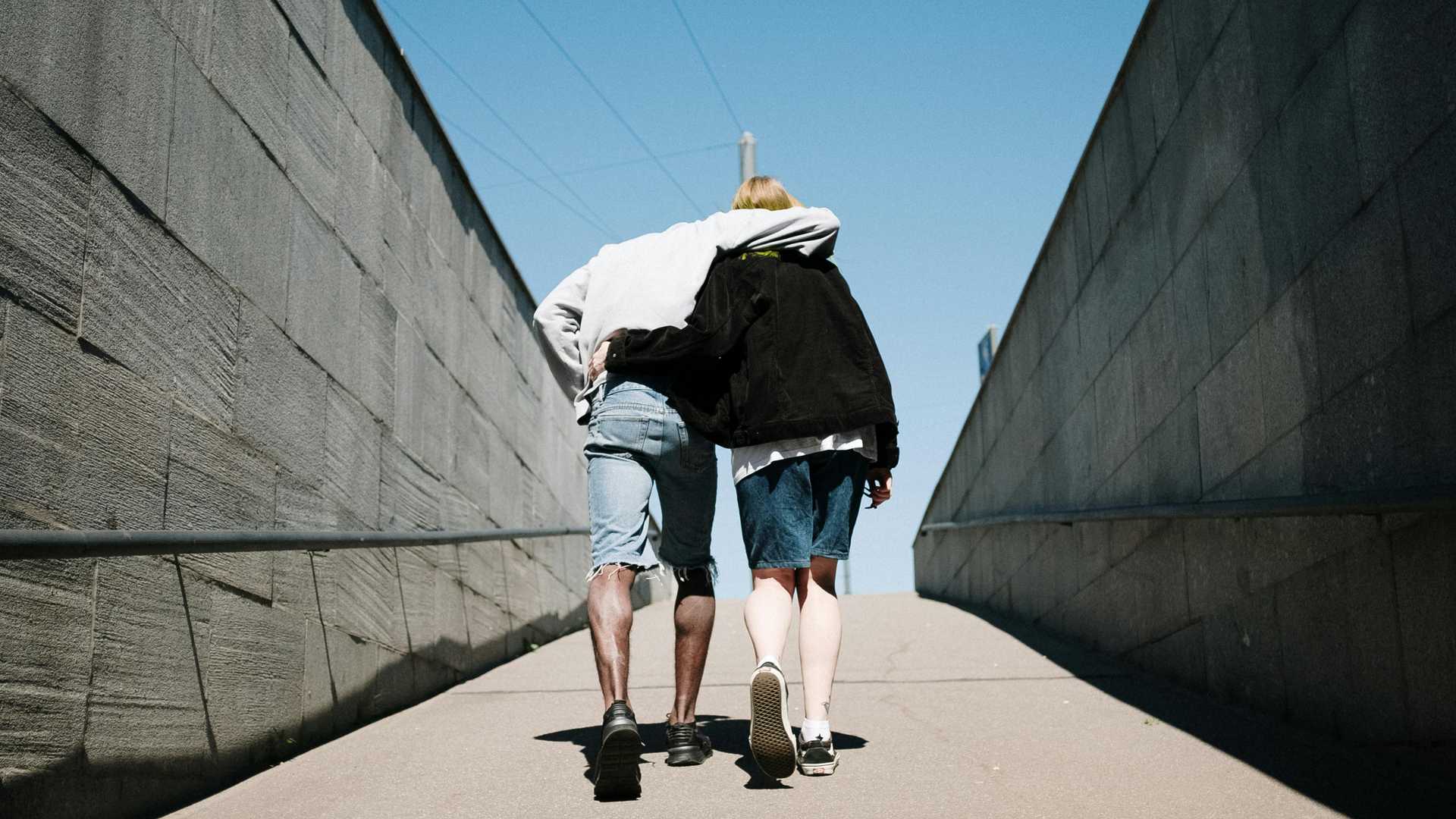
Chapter 05
Team-development 2023
Our team is diverse and has a wide range of professional qualifications, language skills, and cultural backgrounds. To fulfil our mission as best as possible, we hired additional experts last year. Our Research and Environment & Climate teams have been significantly expanded. We launched our Traineeship Program as well. At the end of 2023 the Allianz Foundation had a total of 27 staff members.
The Foundation places great importance on ensuring that the team represents a wide range of societal groups and possesses diverse professional qualifications, language skills, and experience. We are also aware that the philanthropic sector in Europe does not yet sufficiently reflect the diversity of European societies. That is why we launched the Talents for Tomorrow: Diversifying Foundations for Europe Traineeship Program in collaboration with the European Cultural Foundation. The Traineeship Program is aimed at young professionals with a BIPOC (Black, Indigenous and People of Color) background. The first traineeship was awarded in 2023 to a colleague who worked in various posts in the Allianz Foundation over the course of eight months.
Our program and project managers see themselves as the partners of those who take risks to shape the world of tomorrow by ensuring it is already a just one today. Our team members are part of strong networks in the art and cultural scenes, European civil society and the environmental and climate sector. We aligned our strategic areas accordingly to make sure these links bear fruit. All our departments are actively involved in work at the points at which these areas intersect (for empowered people; for open societies; for a living planet). In addition, team members support the Executive Board and are part of the Communications and Administration & Finance departments. For more about our team, click here.
Our Team: The Numbers
0
Staff
0
Number of FTEs (full-time equivalents)
0 %
Administrative expense ratio
We incorporate external experts and local expertise into our work, for example via our Allianz Foundation Hubs in various countries. Renowned experts from civil society, art and culture, academia and the media support our studies by sitting on the Research Advisory Board and being members of our juries. We cooperate closely with them to select and support the most suitable projects and partner organizations.
Our Juries
European Civil Society
Wolfgang Kaleck
Prof. Dr. Kader Konuk
Yasmine Ouirhrane
Arts & Culture
Vitali Alekseenok
Kader Attia
Julia Wissert
Climate & Environment
Dr. Camilla Bausch
Prof. Dr. Ali Aslan Gümüsay
Imeh Ituen
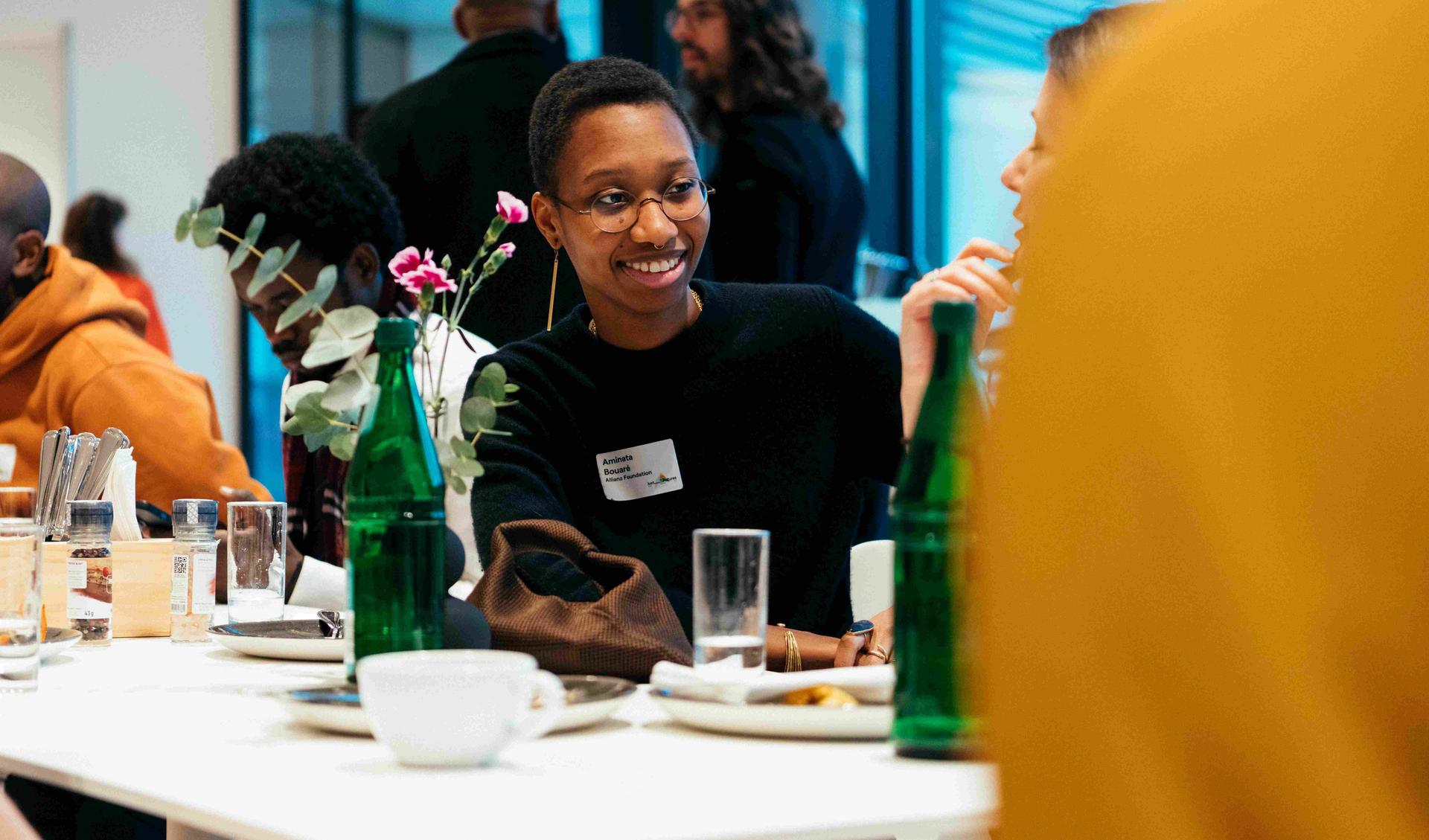
Aminata Bouaré, Trainee Allianz Foundation © Leander von Thien
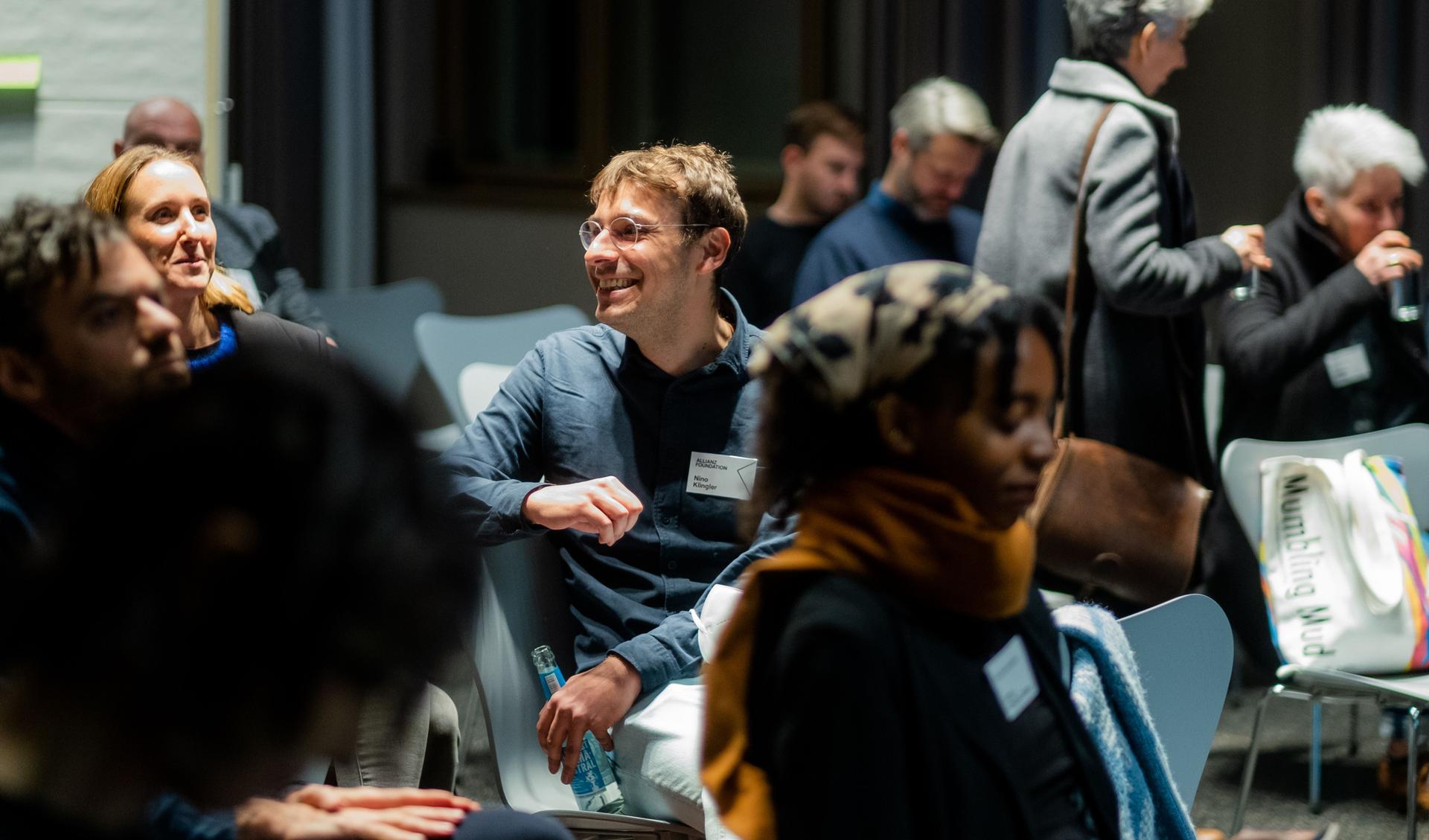
Nino Klingler, Leiter Team Kunst & Kultur Allianz Foundation © Steffi Retti
Administrative expense ratio
0 m euros
The Foundation’s administrative expenditure on materials and personnel totaled. These expenses are not directly assigned to any funding or operative projects.
0 %
Administrative expense ratio
Climate Action Strategy
In 2023 the Allianz Foundation began work on its own Climate Action Strategy. As a charitable foundation that is committed to open and climate-friendly societies, we are specifically not working toward achieving net zero, since this could be achieved by means of carbon off-setting, a problematic practice. We are going one step further by drawing up an alternative strategy that is geared to making the best contribution possible to achieving the goals set out in the Paris Declaration as well as the Sustainable Development Goals (SDGs) set out in the Agenda 2030. It is based on what is called the “contribution claim” model.
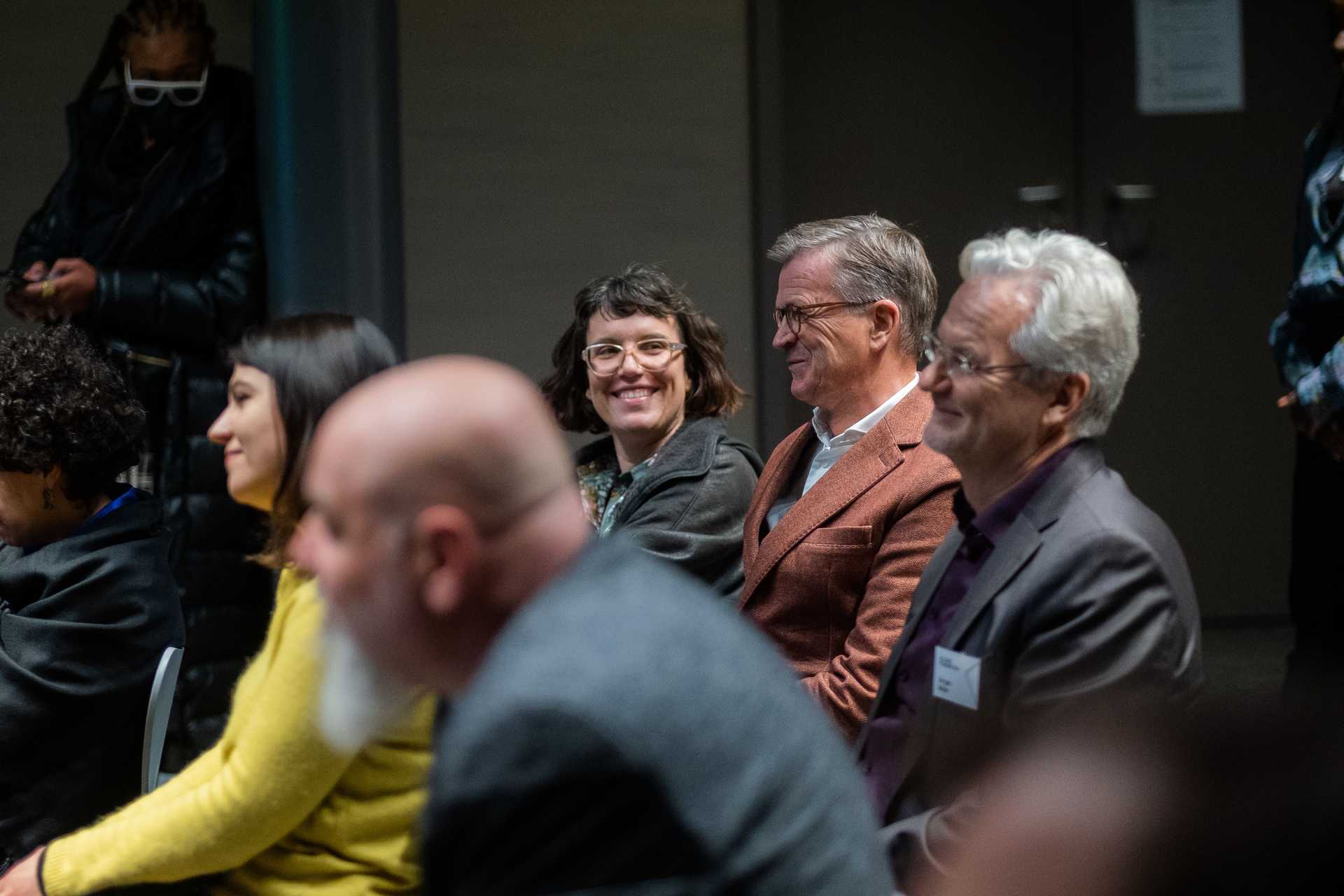
Chapter 06
Governance
- The Allianz Foundation’s statutory bodies are its Executive Board and Board of Trustees. The tasks of both are set out in the Allianz Foundation Statute (German only)
Esra Kücük is CEO of the Allianz Foundation. As Esra Kücük went on parental leave for six months in November 2022, the COO and an external (part-time) expert were appointed to the Executive Board as temporary deputies. In 2023 the Executive Board thus comprised the following people: - Esra Kücük, CEO
- Katharina E. Thomas, Chief Operating Officer and Interims-CEO (until May 2023)
- Jürgen Maier, Interims-CEO (until May 2023)
As at the end of 2023 the Board of Trustees comprised the following members:
- Dr. Werner Zedelius (Chair)
- Prof. Dr. Bénédicte Savoy (Deputy Chair)
- Prof. Dr. Susanne Baer
- Emilio Galli Zugaro
- Basil Kerski
- Prof. Dr. Birgit Mandel
- Prof. Dr. Susan Neiman
- Hermann Rothert
- Prof. Dr. Uwe Schneidewind
- Philipp von der Wippel
Philipp von der Wippel, Prof. Dr. Birgit Mandel and Prof. Dr. Susanne Baer joined the Board of Trustees in 2023. Hermann Rothert retired from the Board of Trustees at the end of 2023.
The Board of Trustees meets twice a year. In 2023 they met on 28 June and 22 November.
Annual Financial Statements and Data Protection
The Allianz Foundation’s 2023 annual financial statements were audited by RHS Rein Hambrecht Singer GmbH Wirtschaftsprüfungsgesellschaft, Steuerberatungsgesellschaft, Munich and endorsed with an unqualified audit certificate.
The Allianz Foundation cooperates with 2B Advice GmbH, Bonn to ensure compliance with data protection regulations and to complete its tasks under Article 39 of the General Data Protection Regulation (GDPR).
Top
